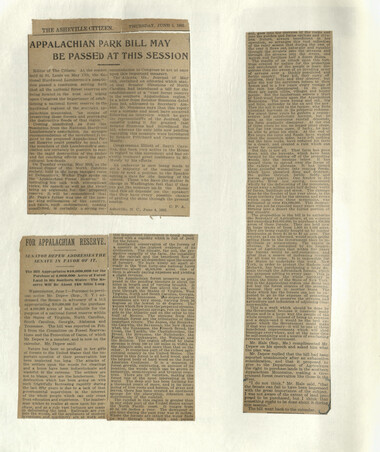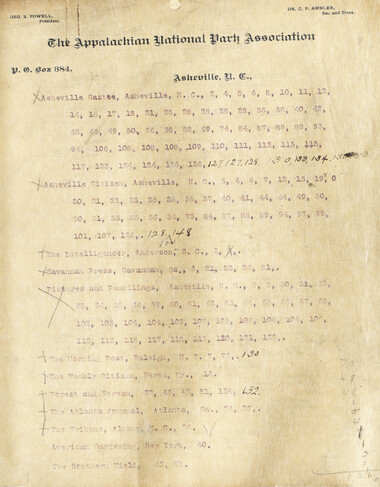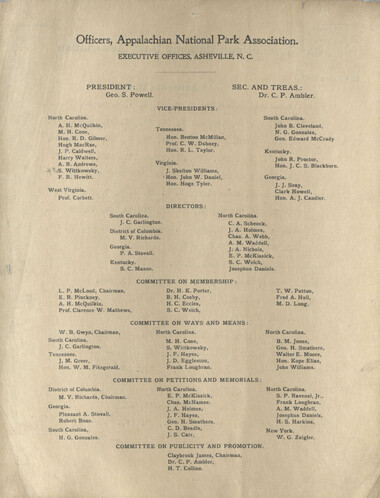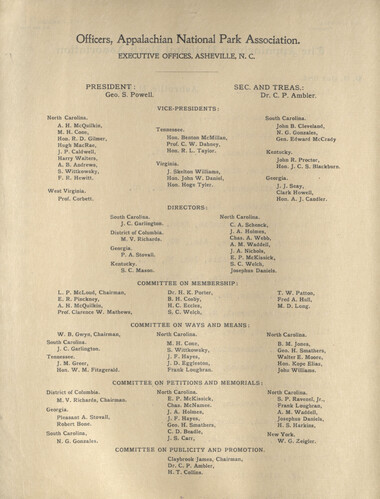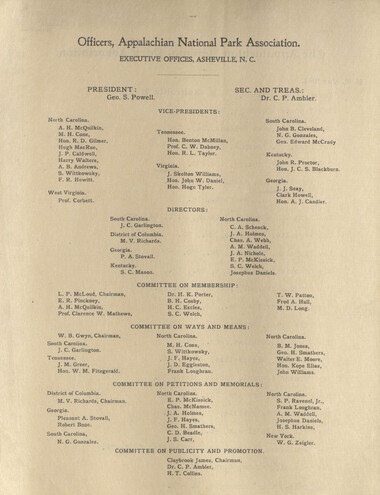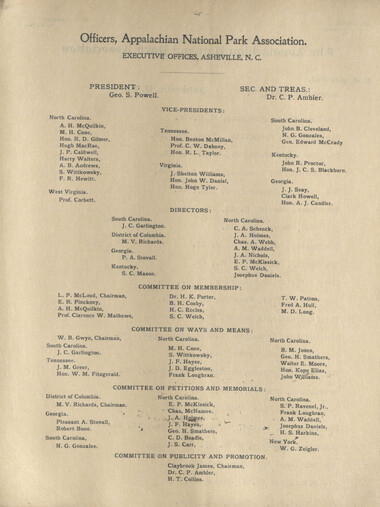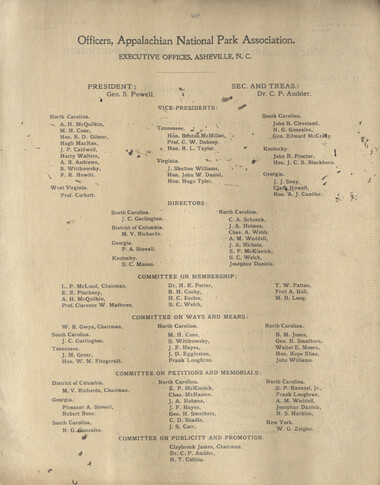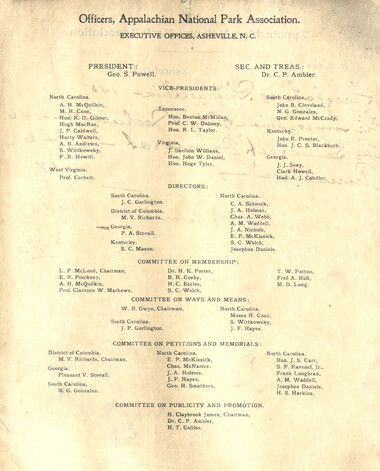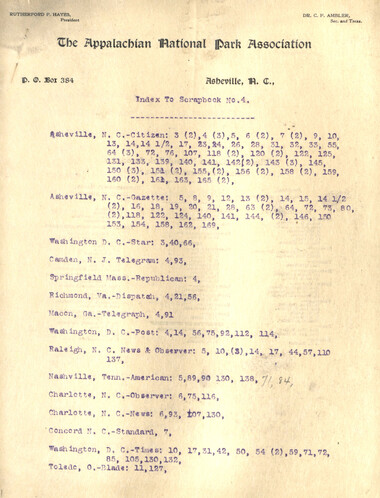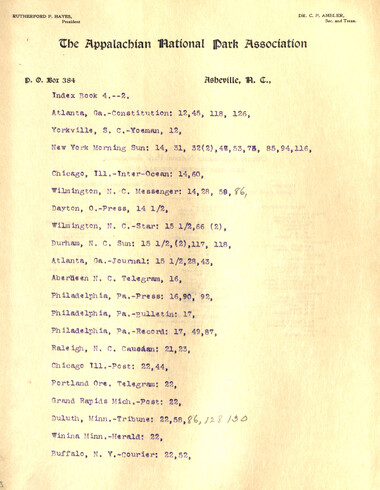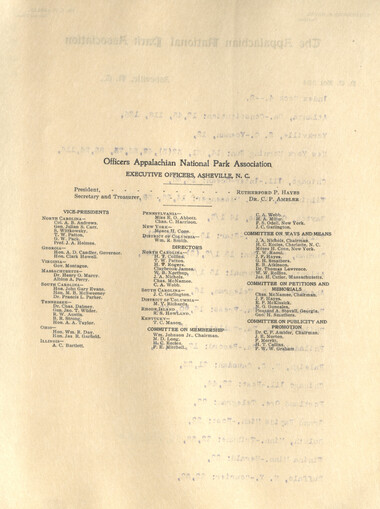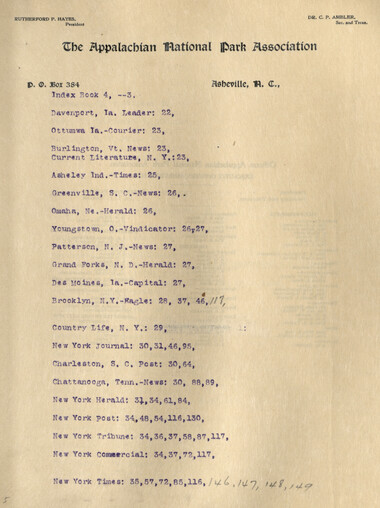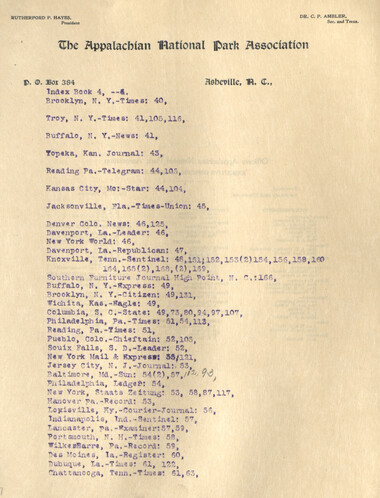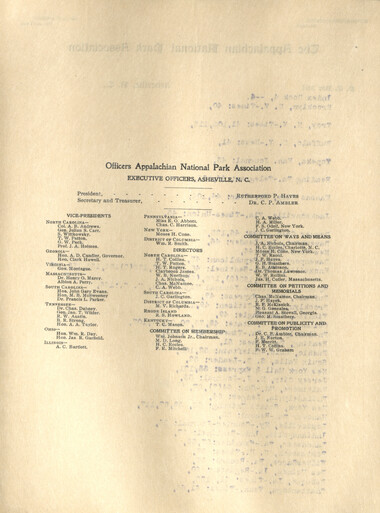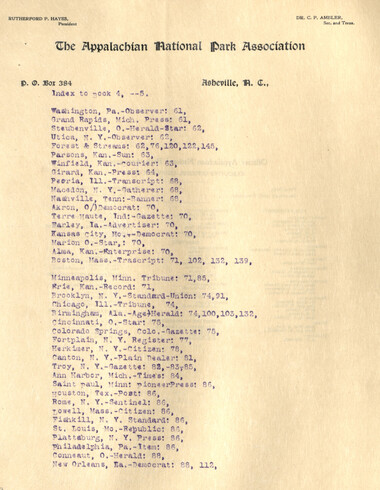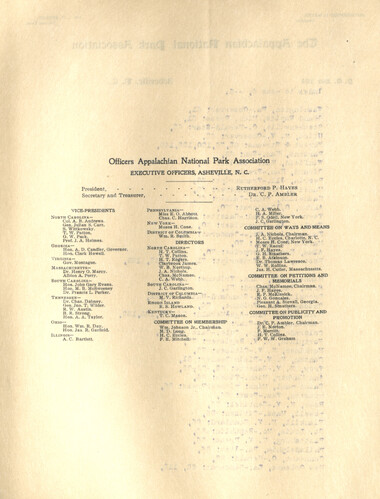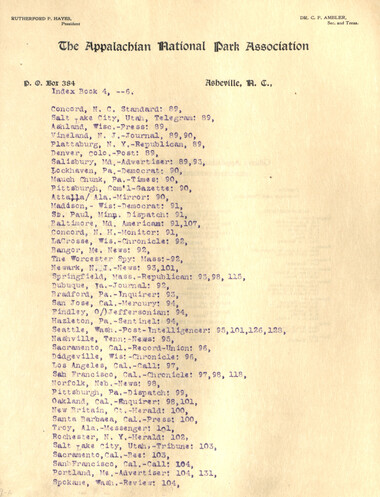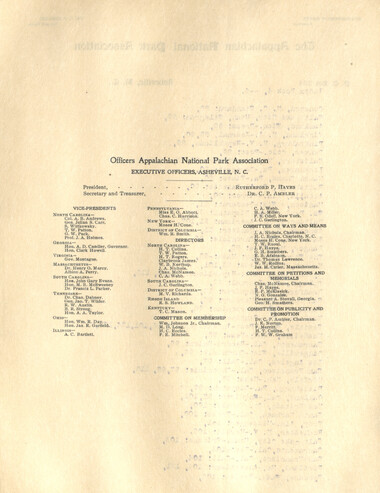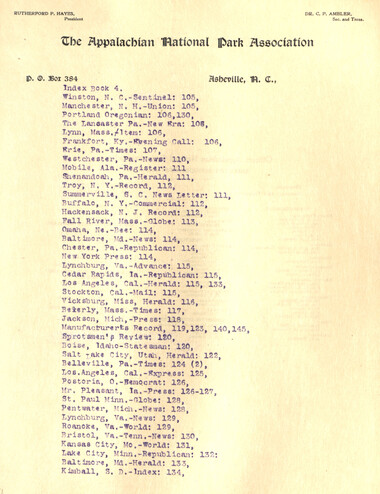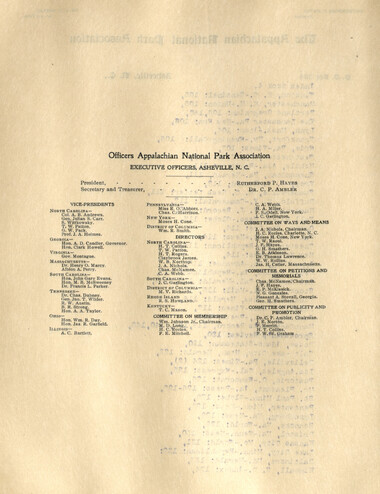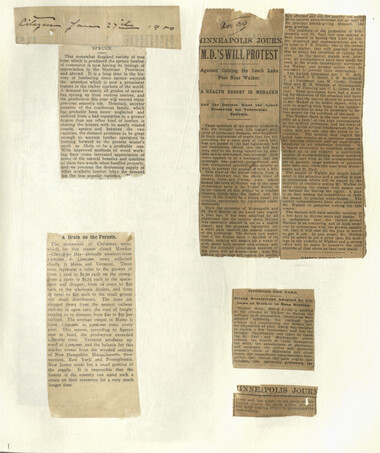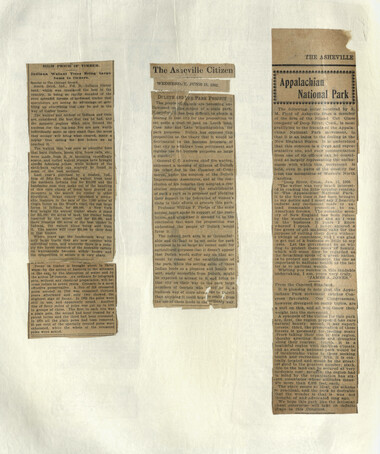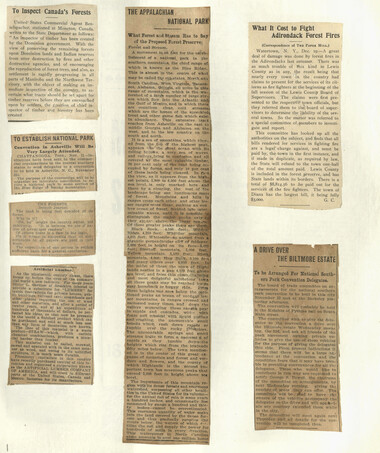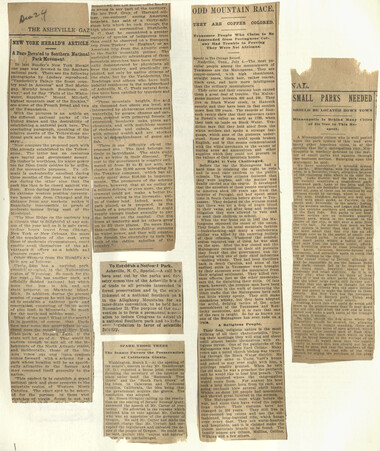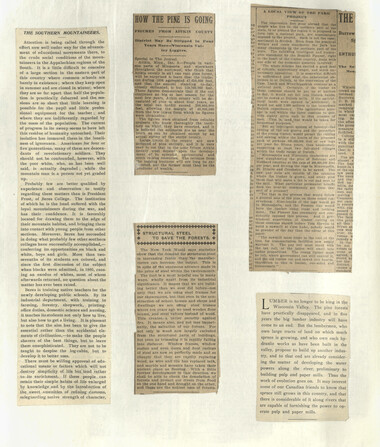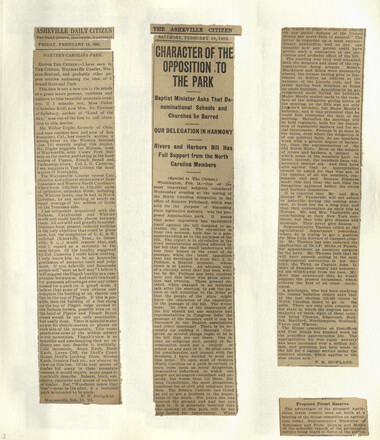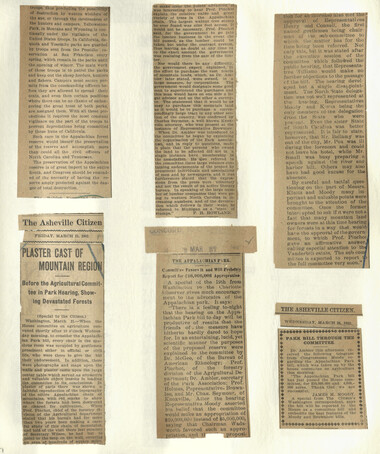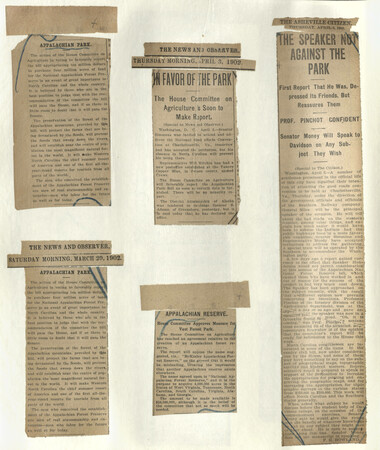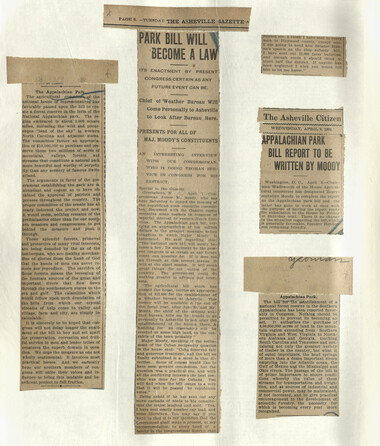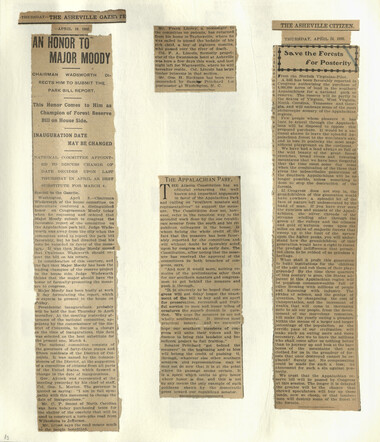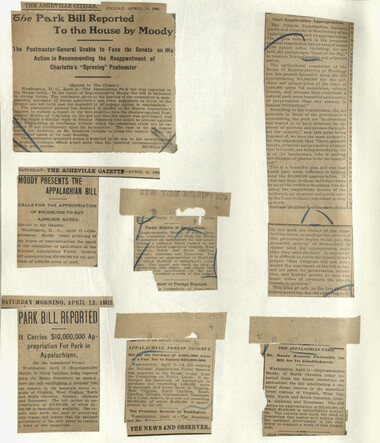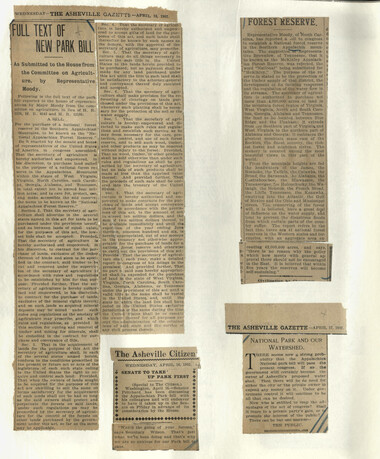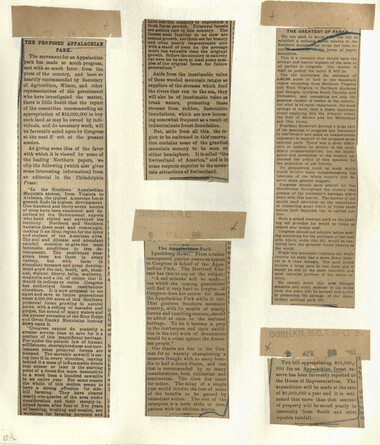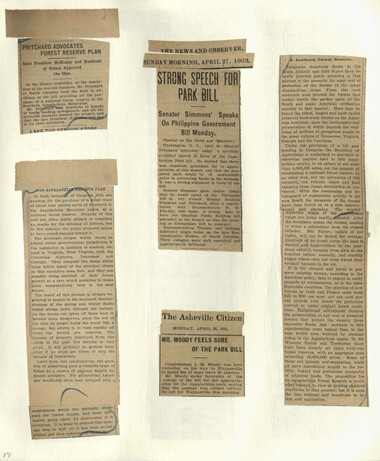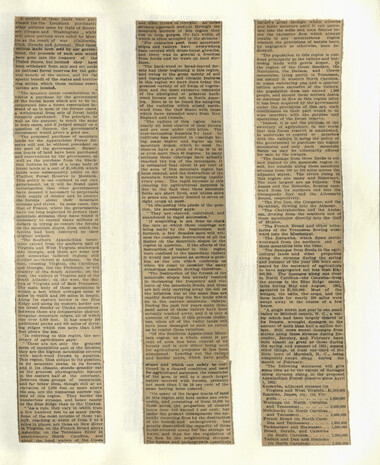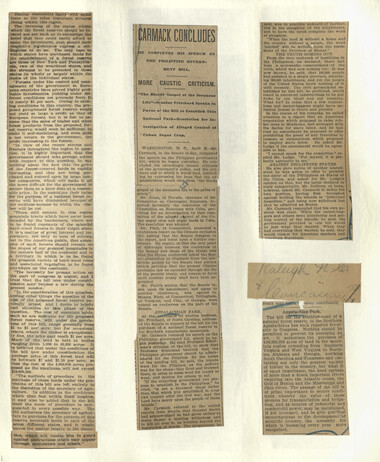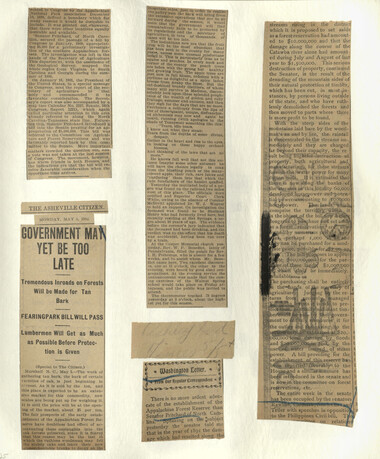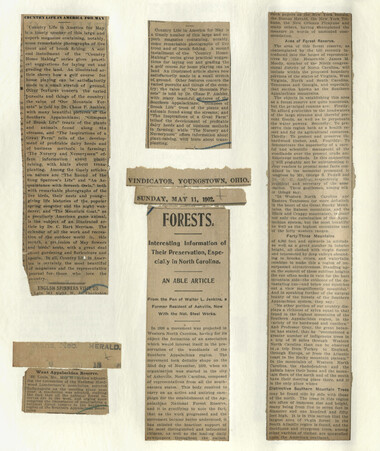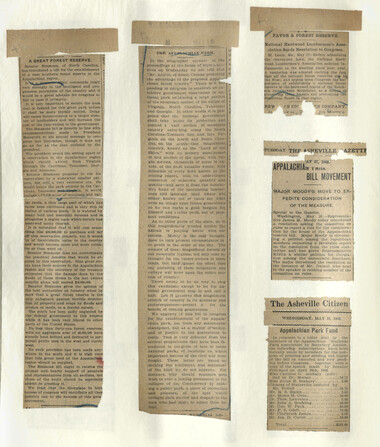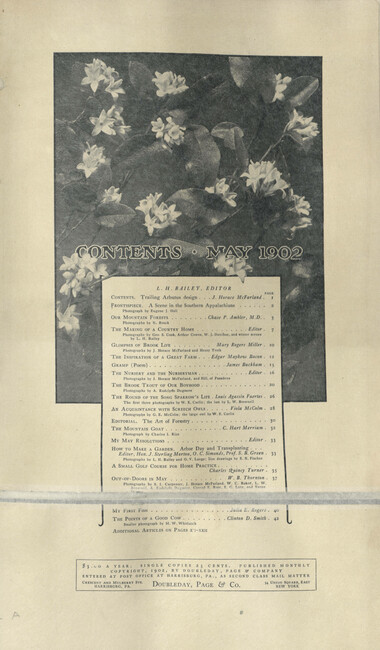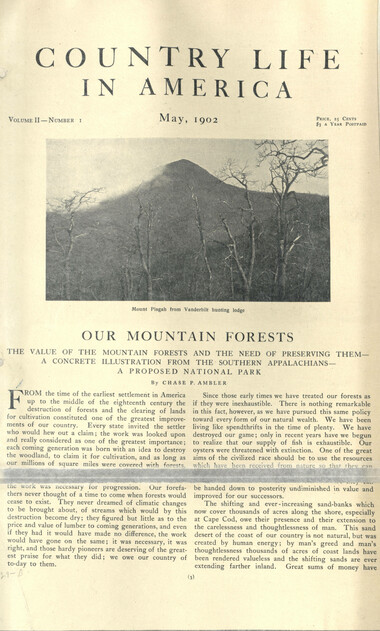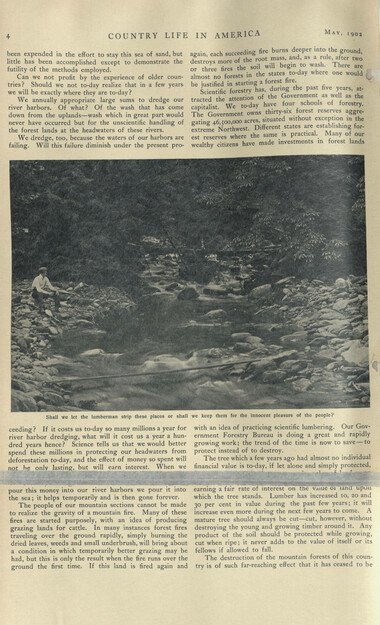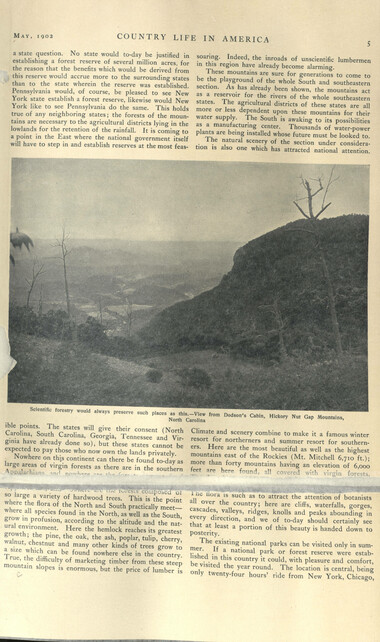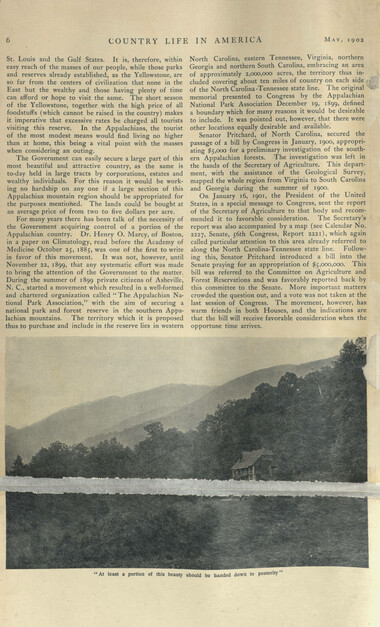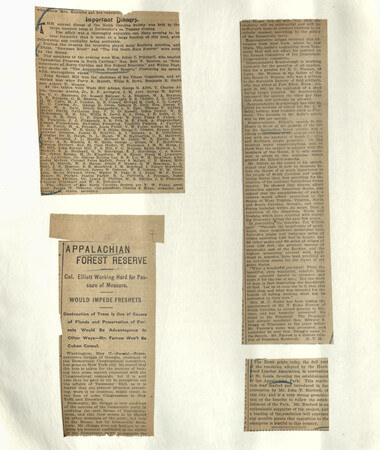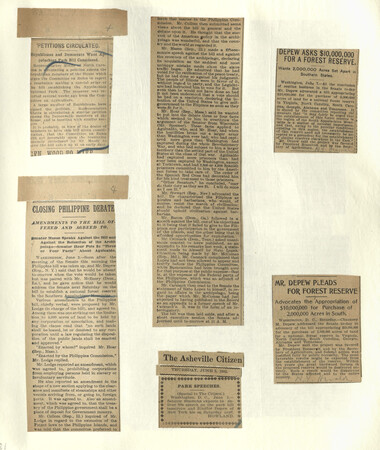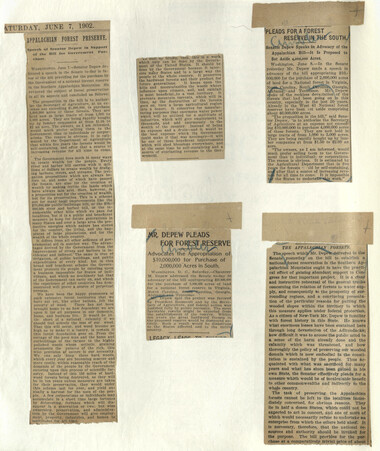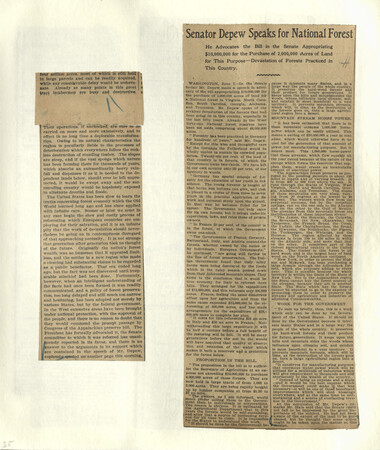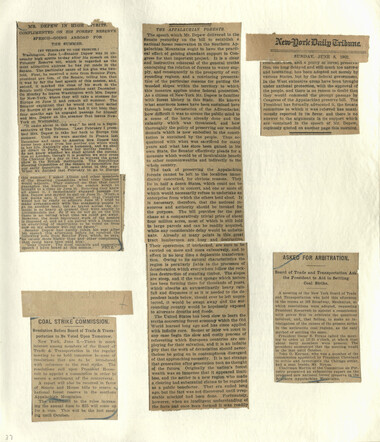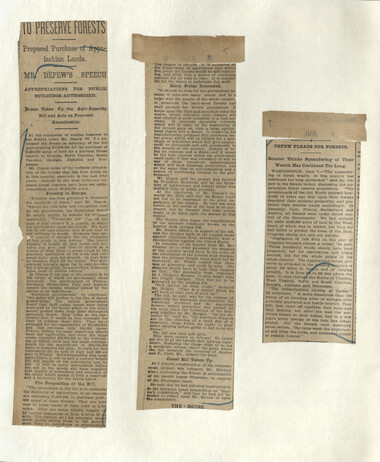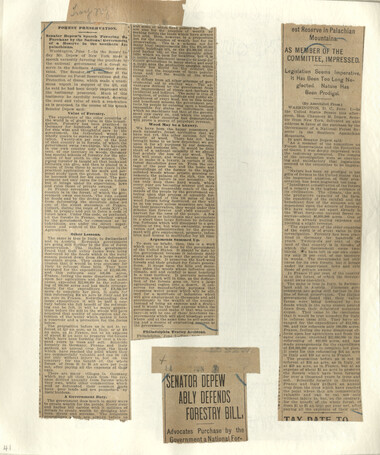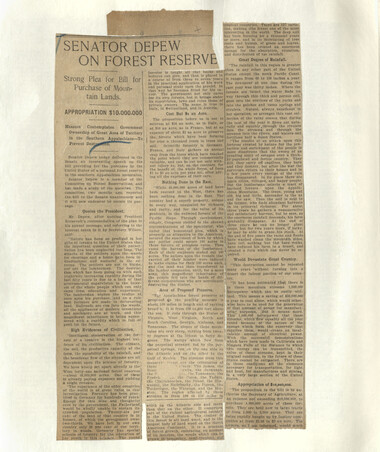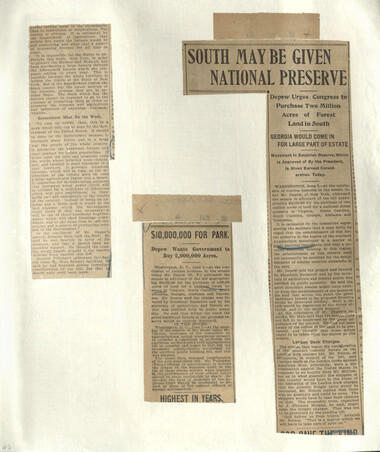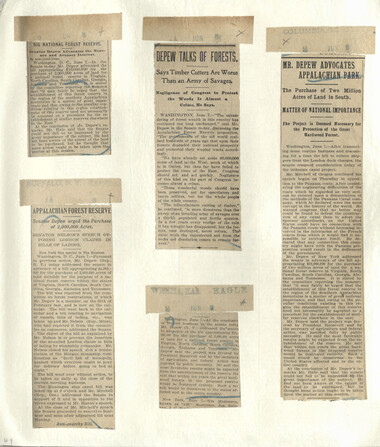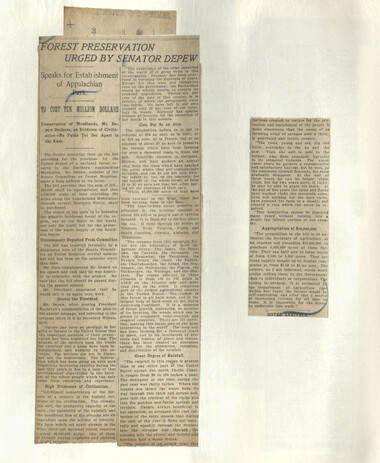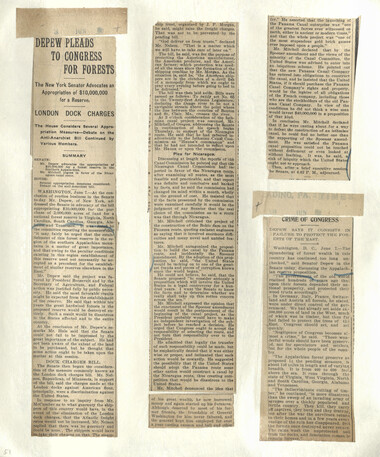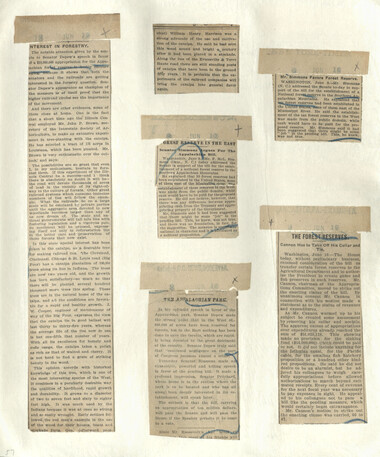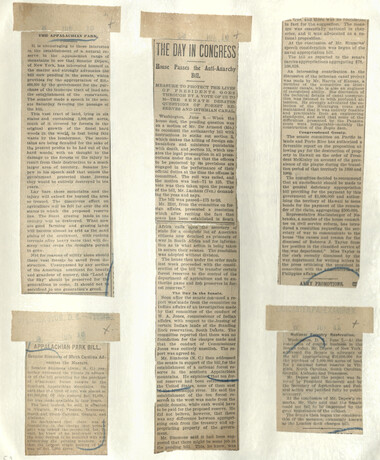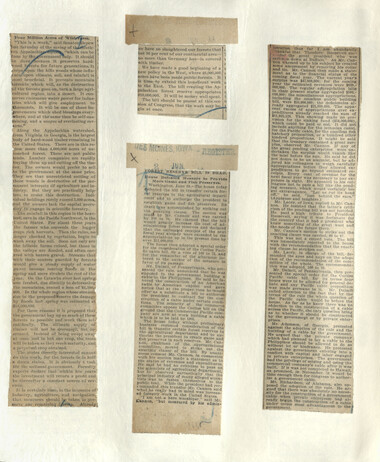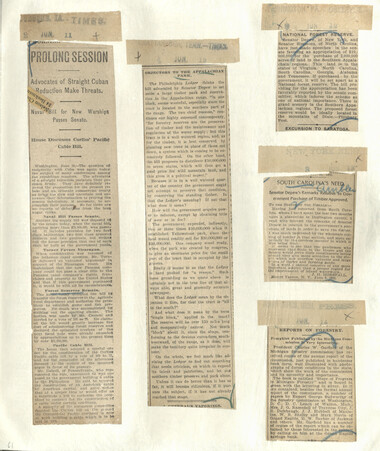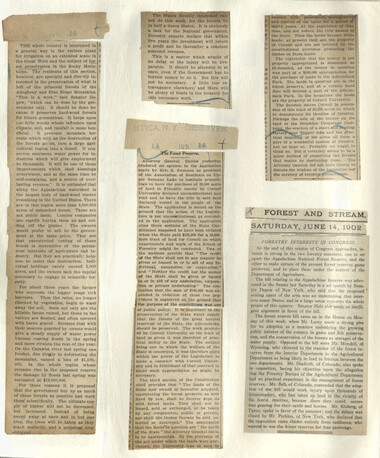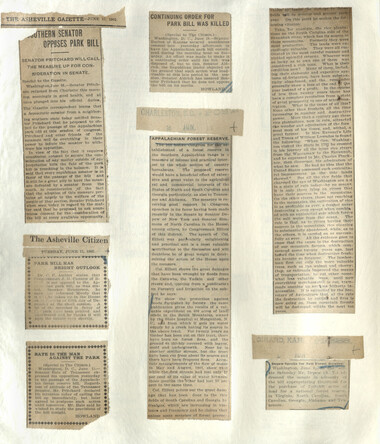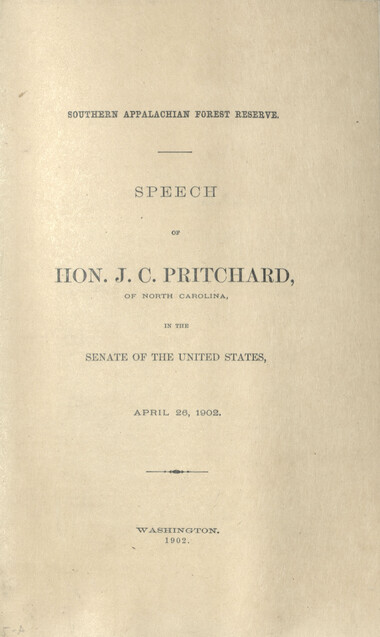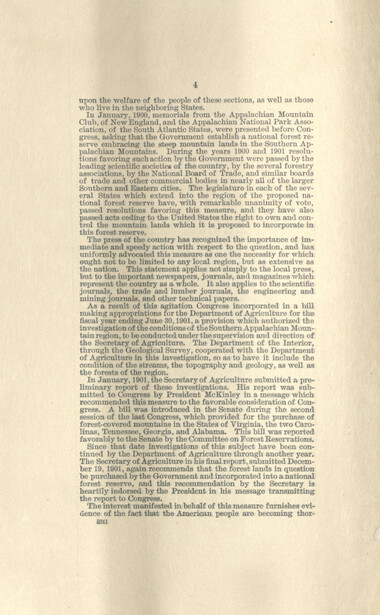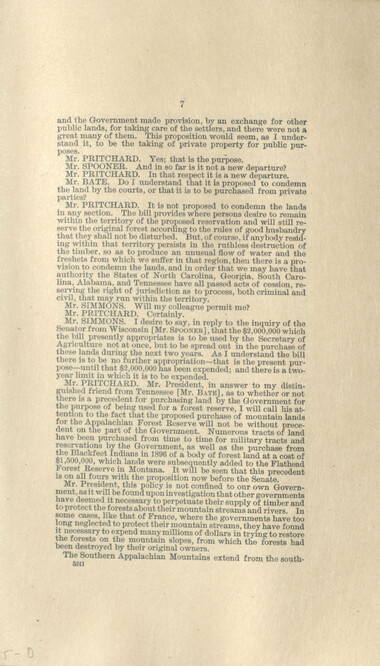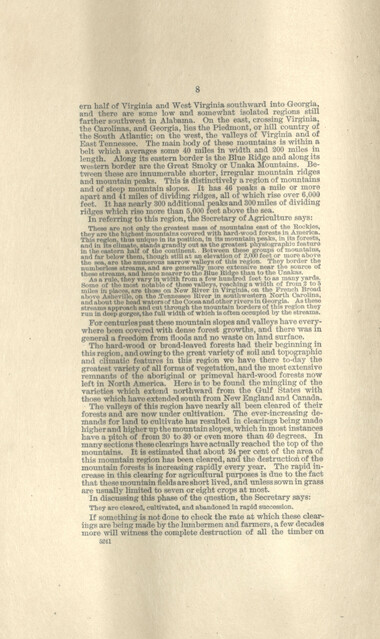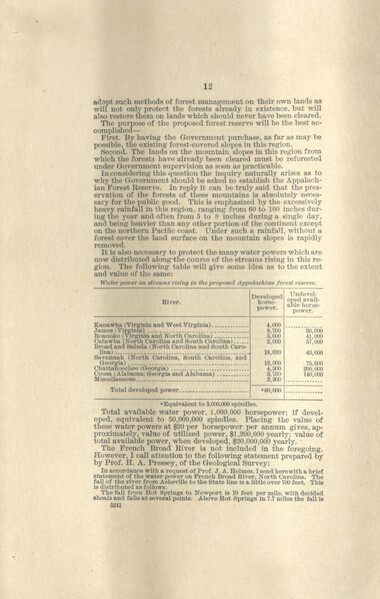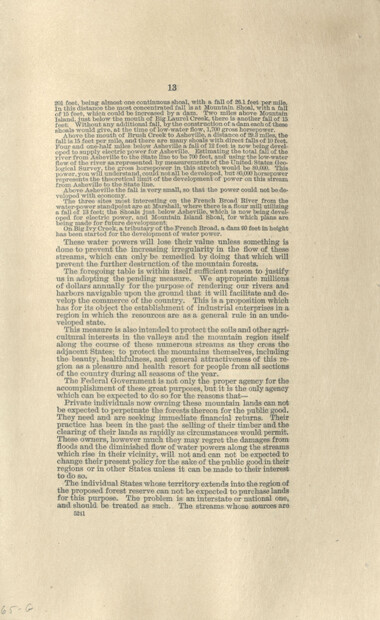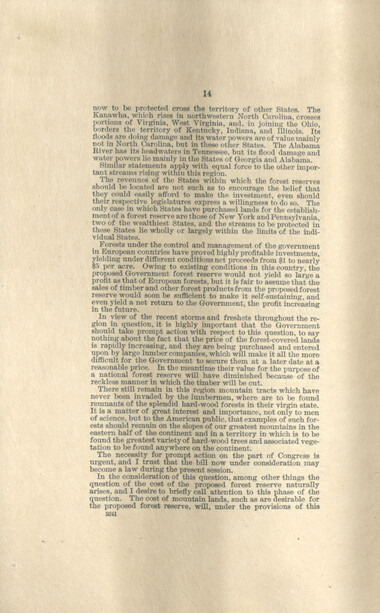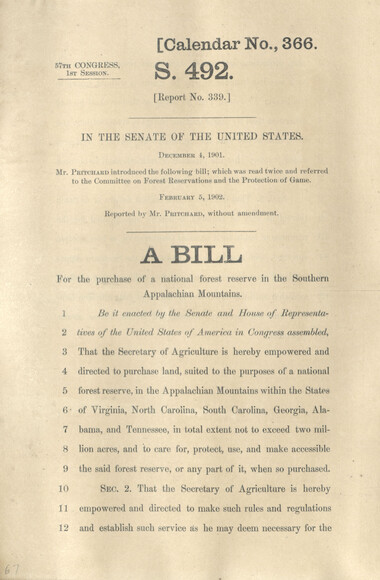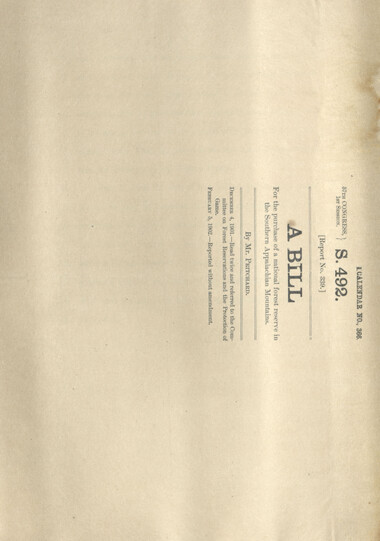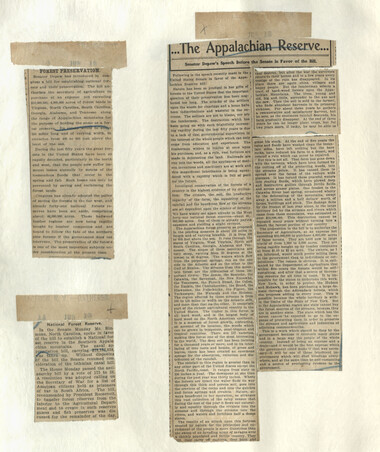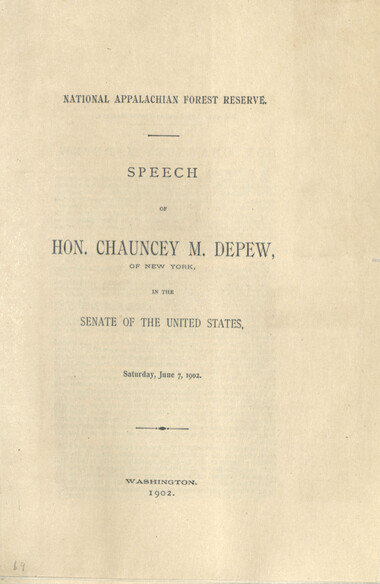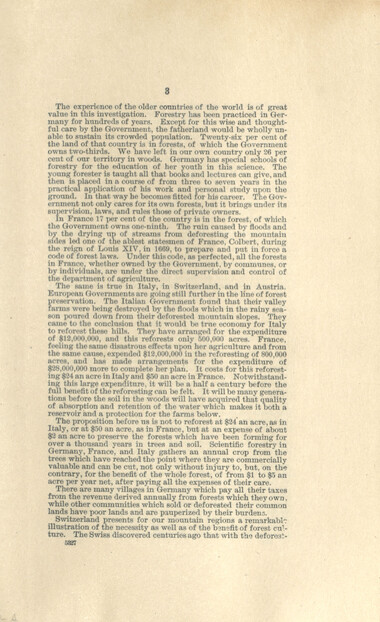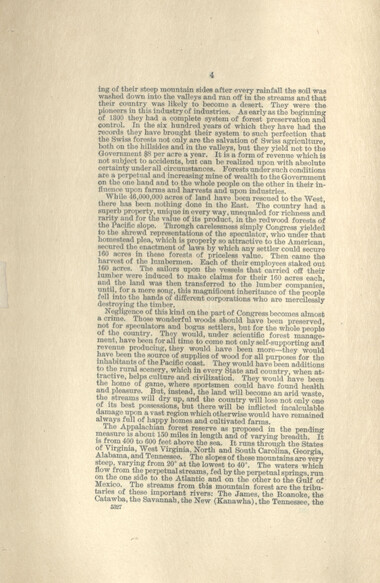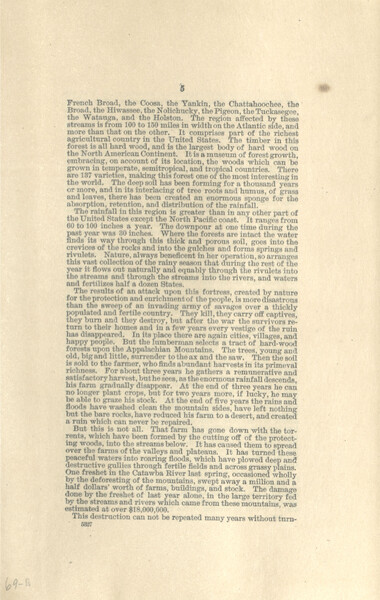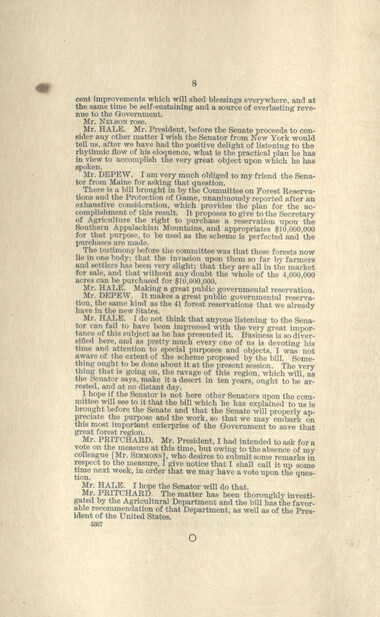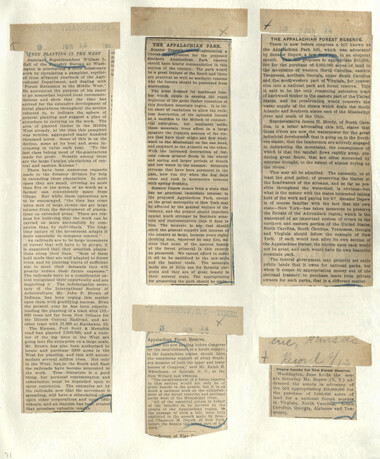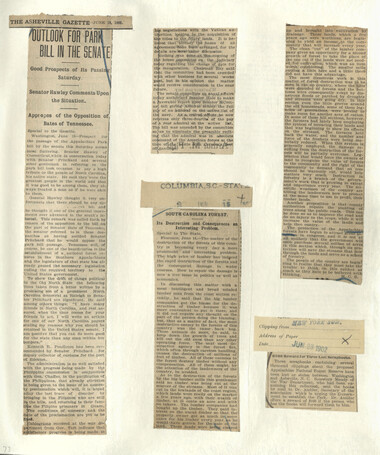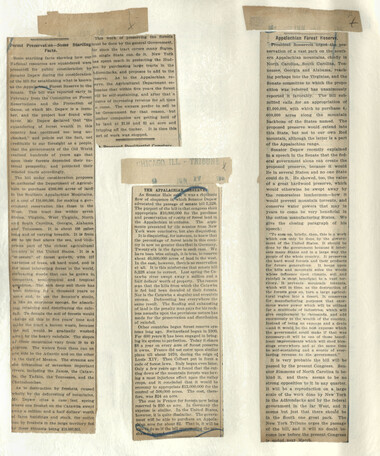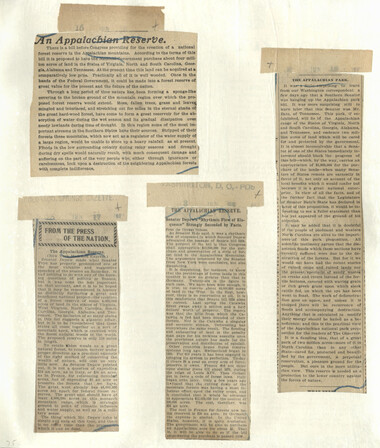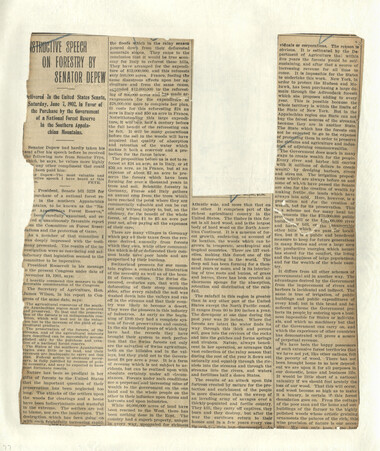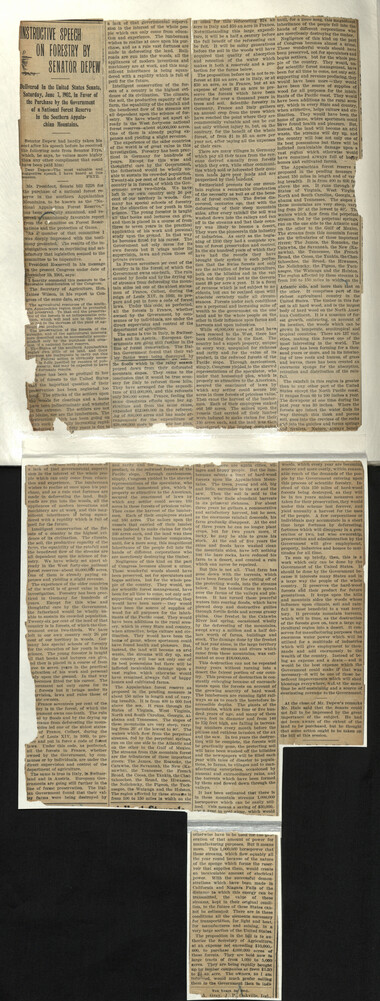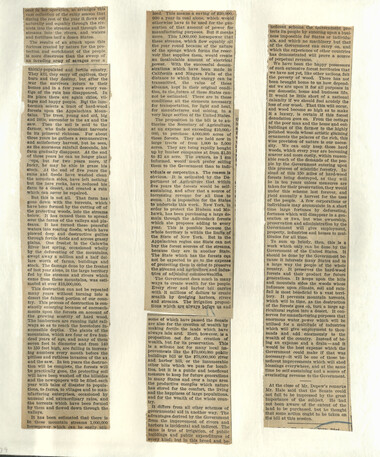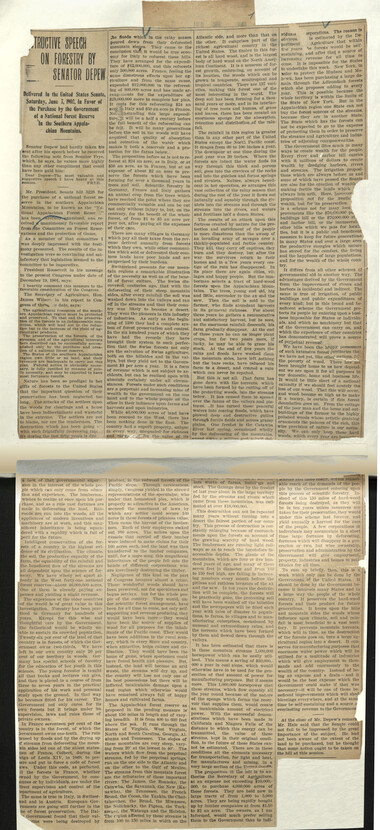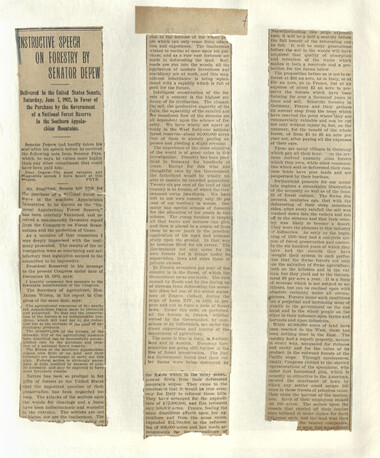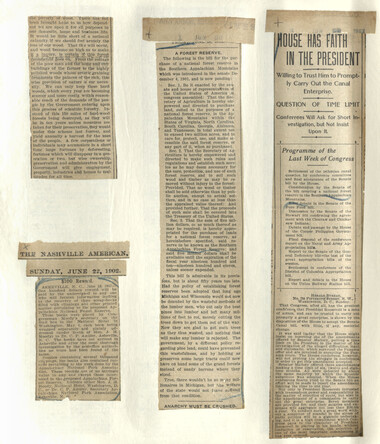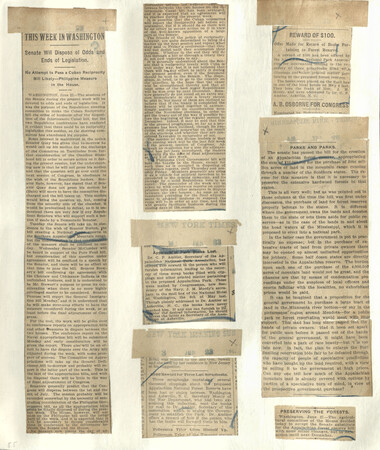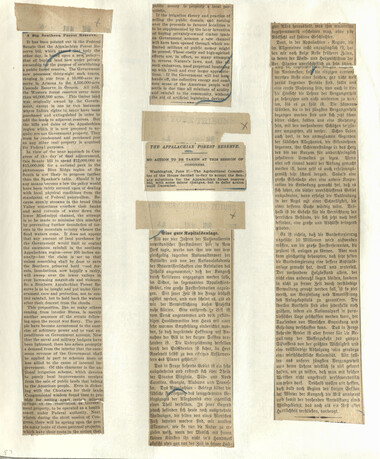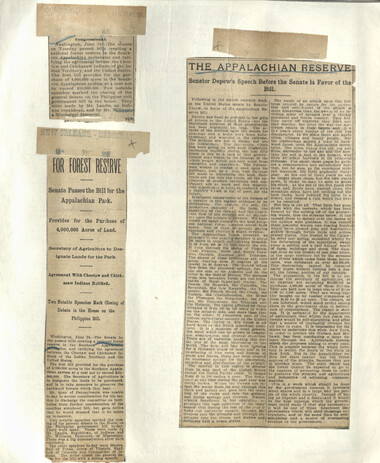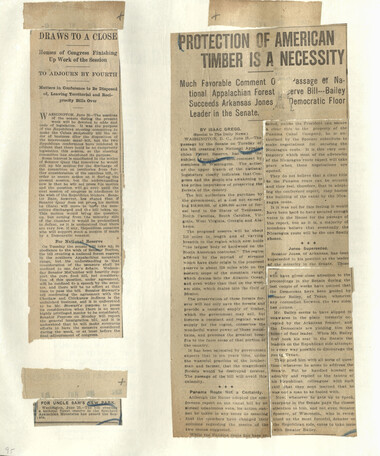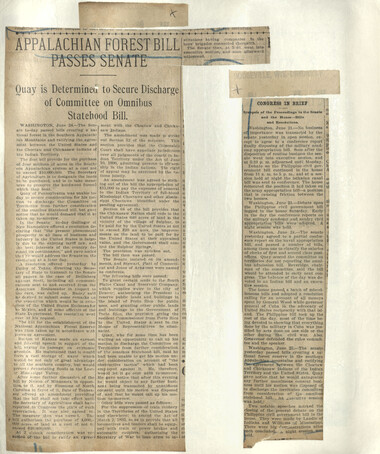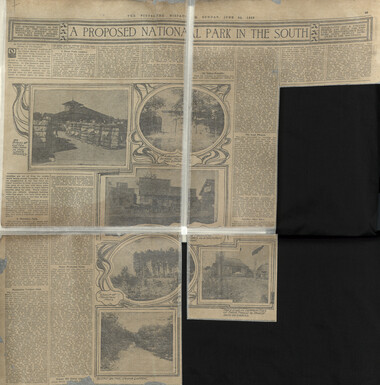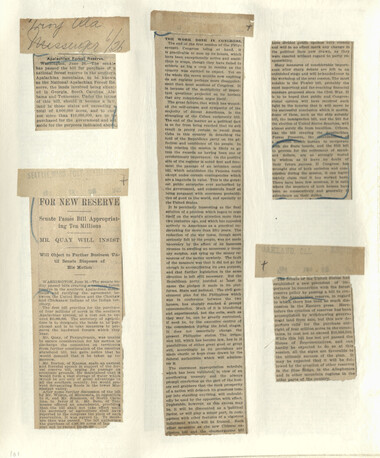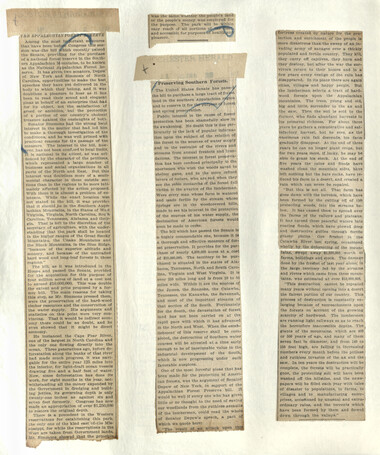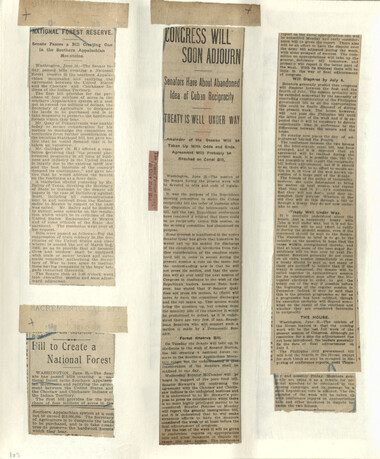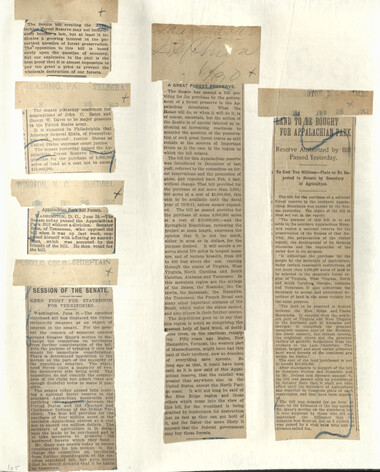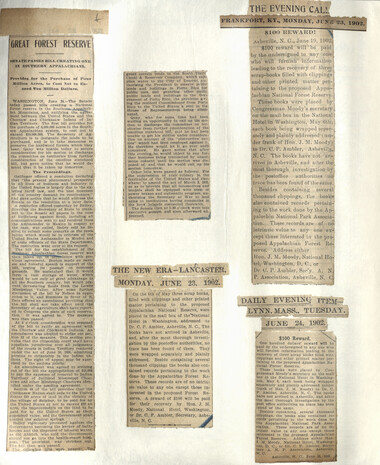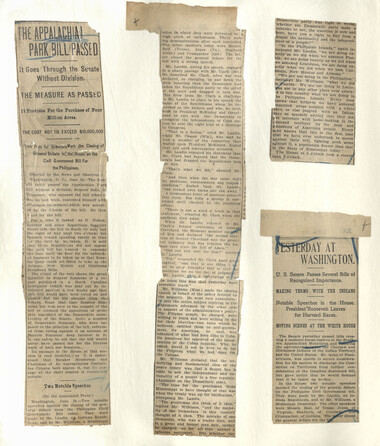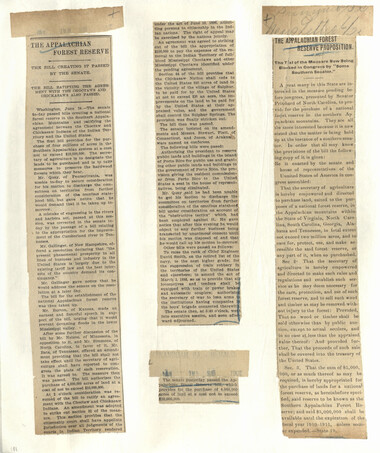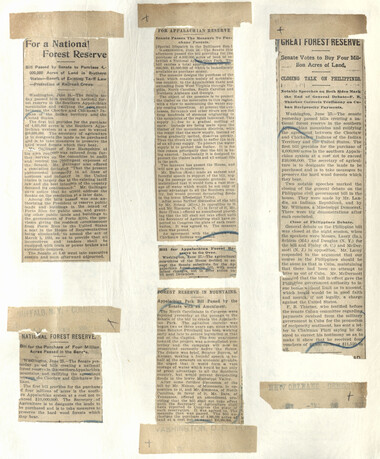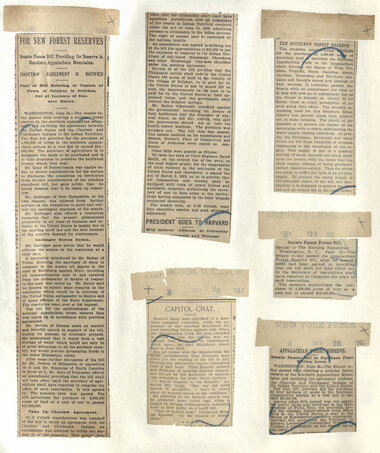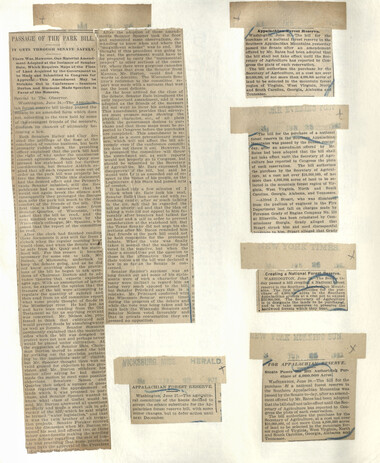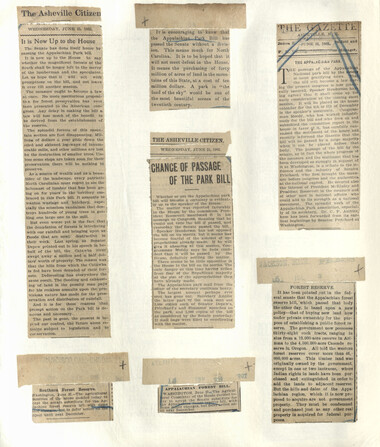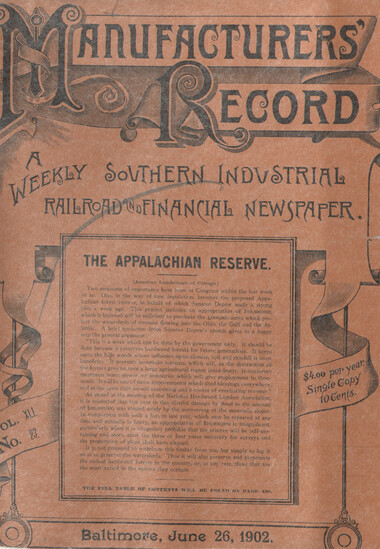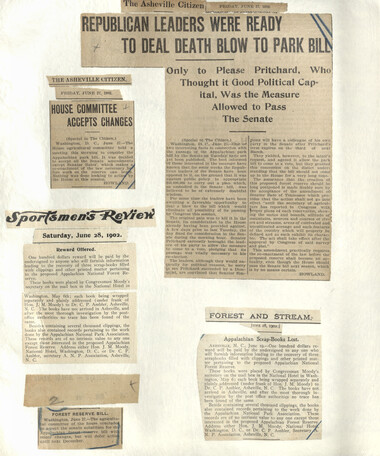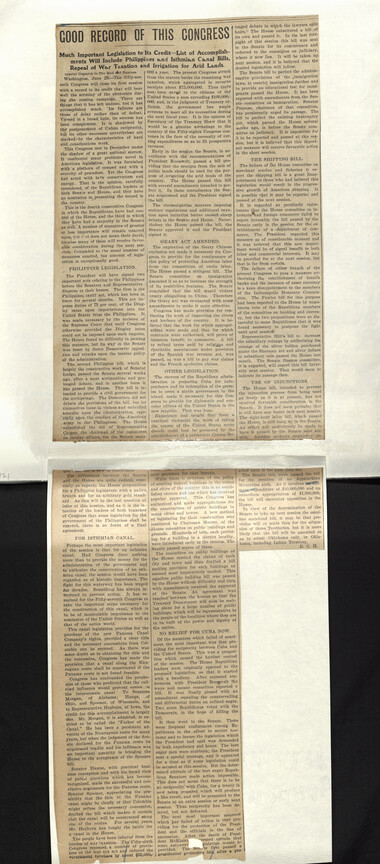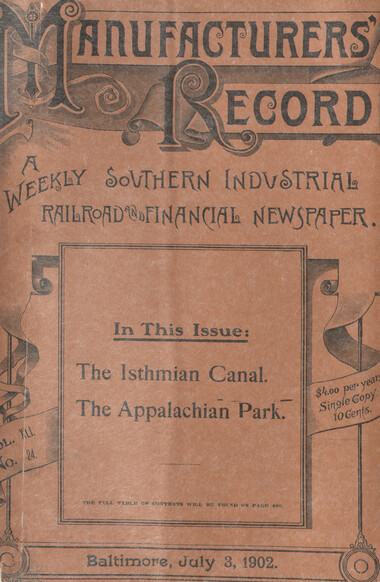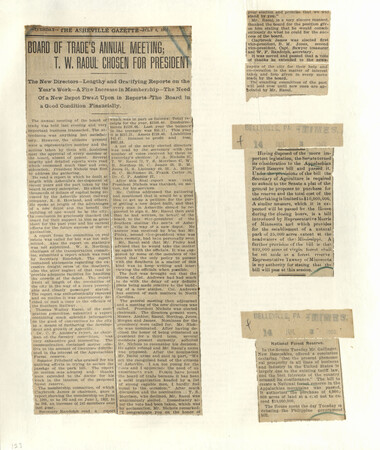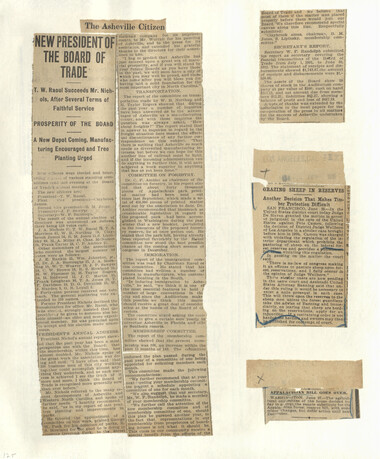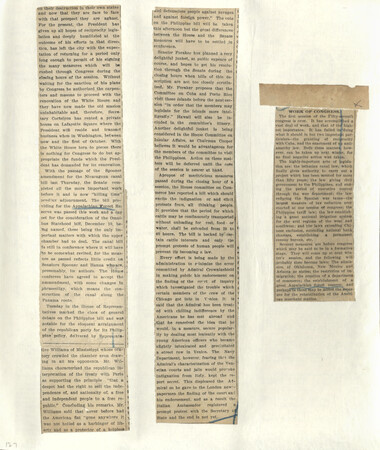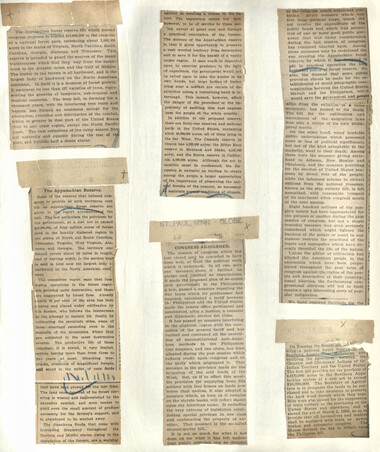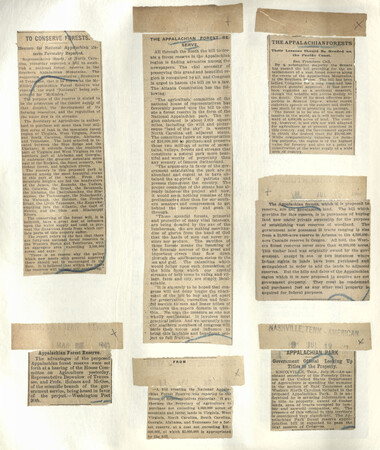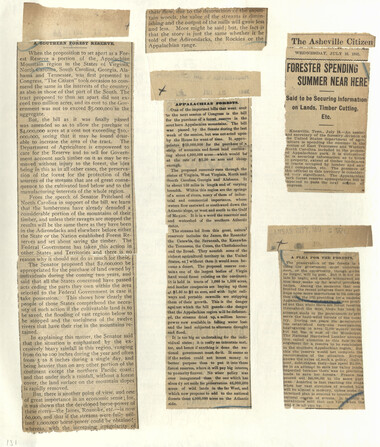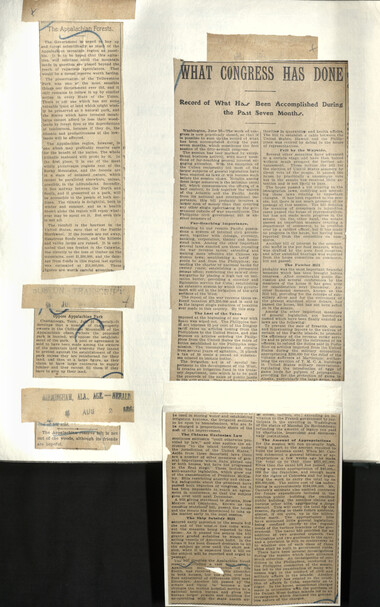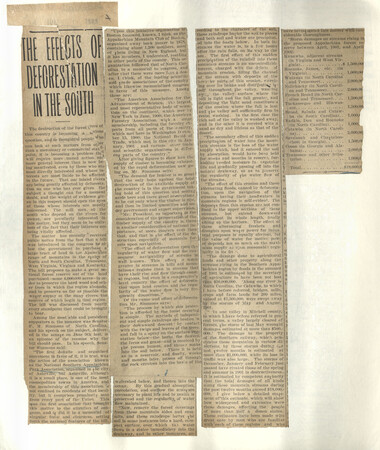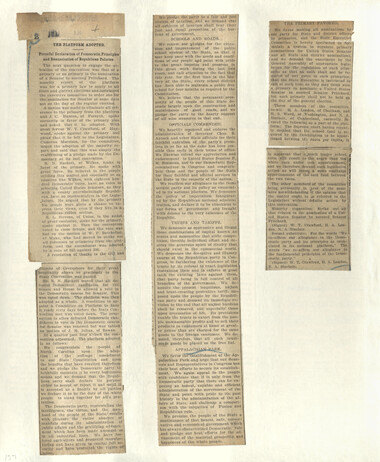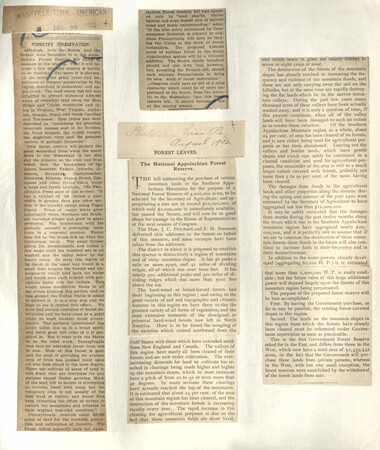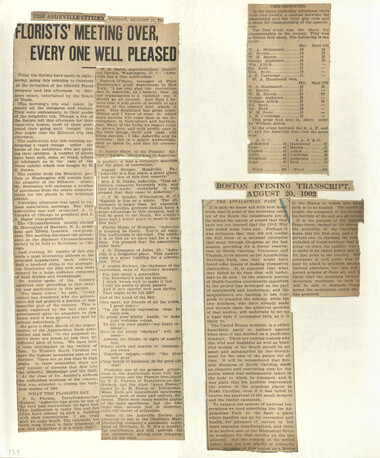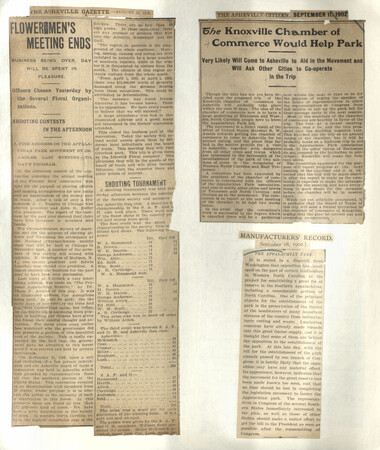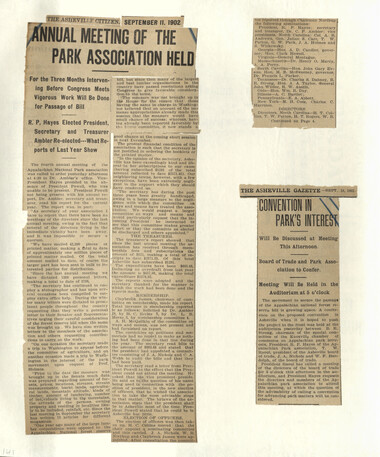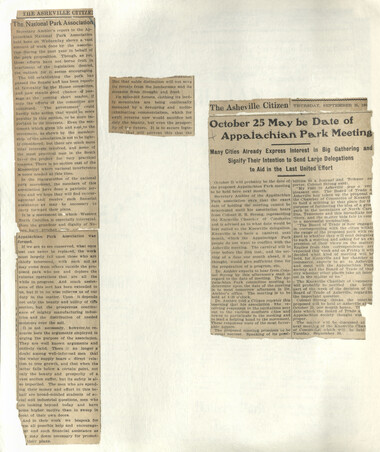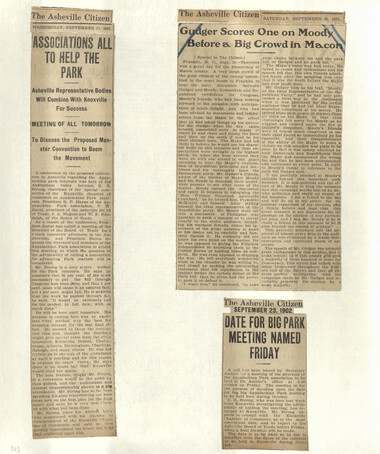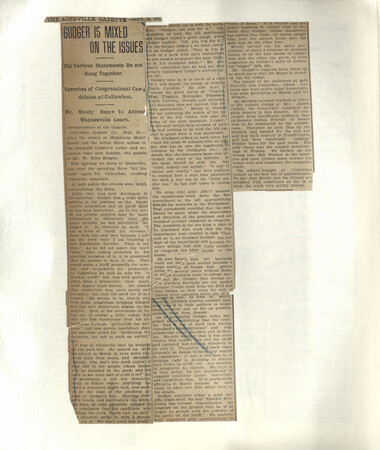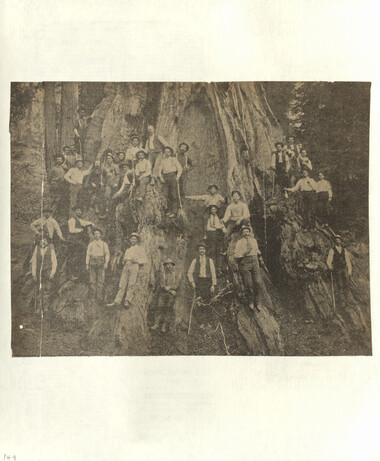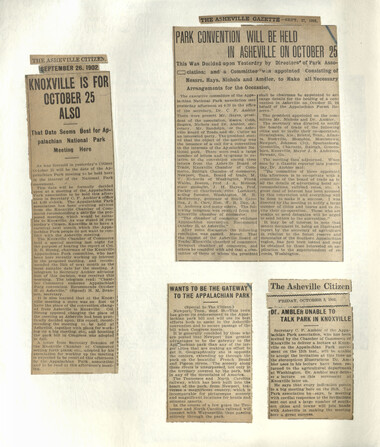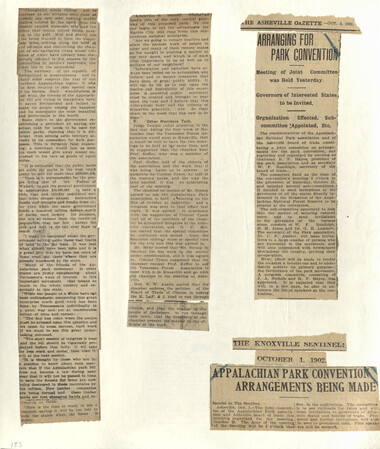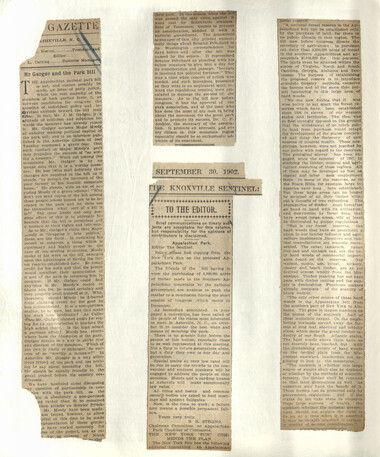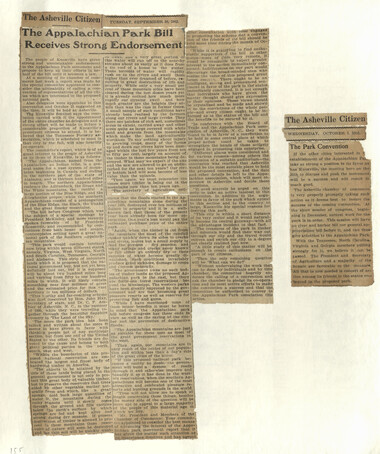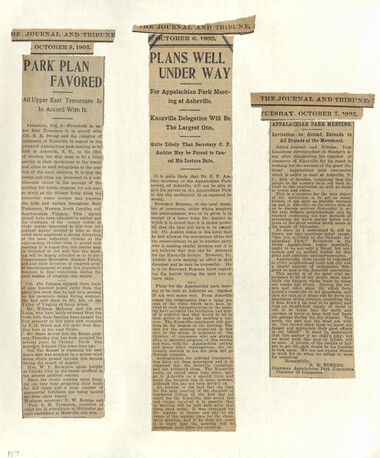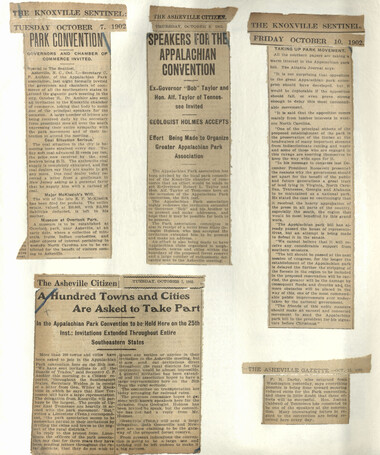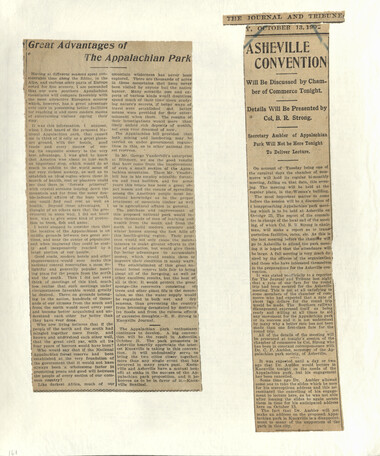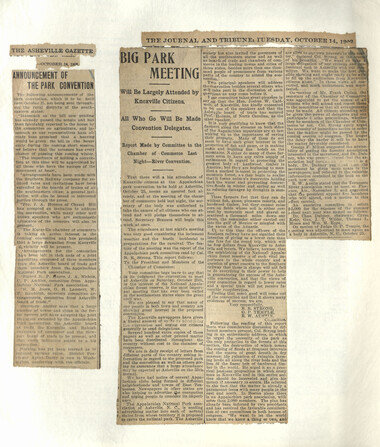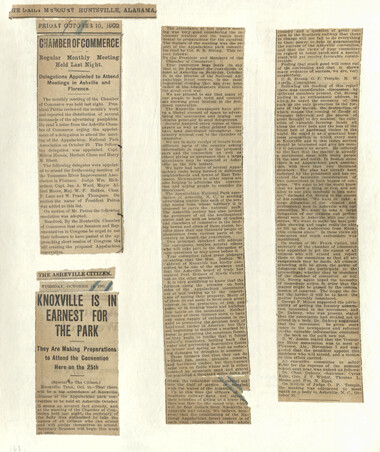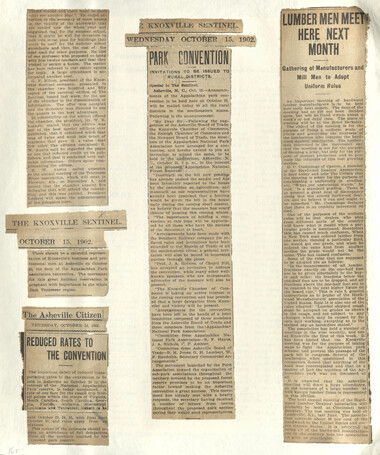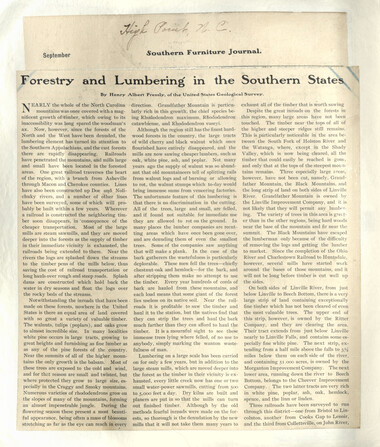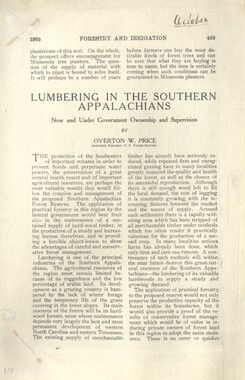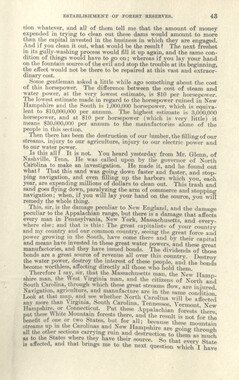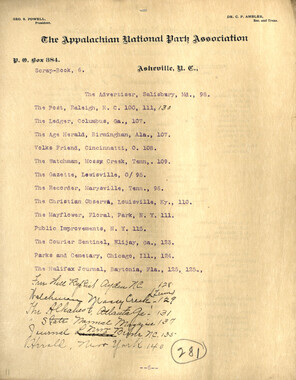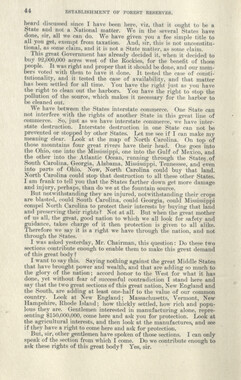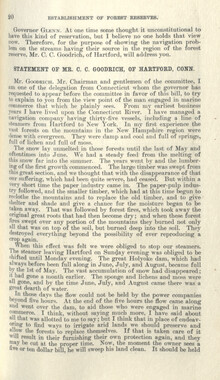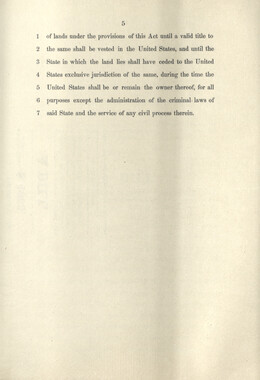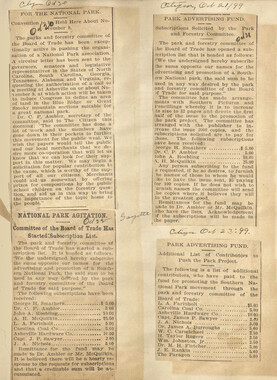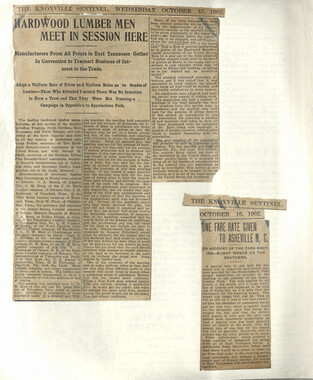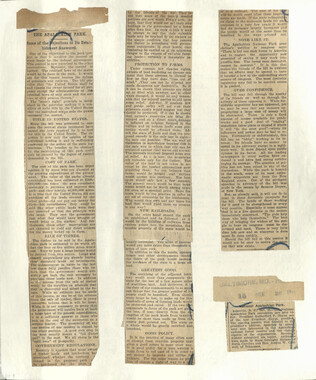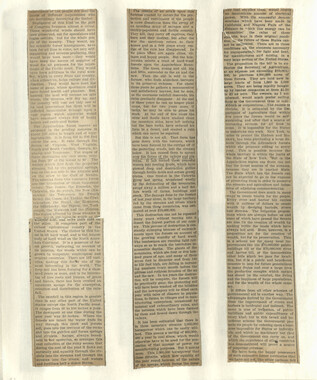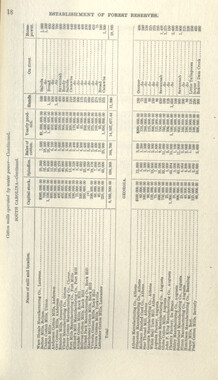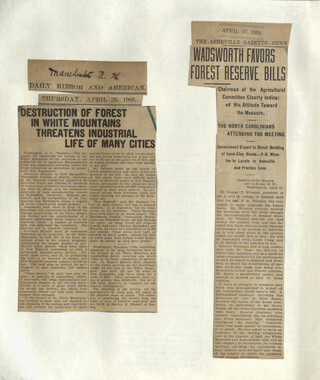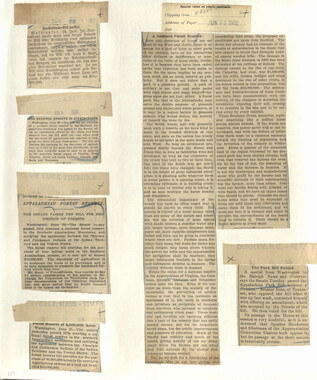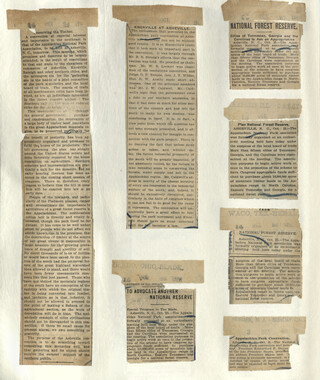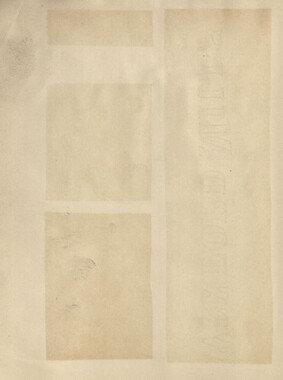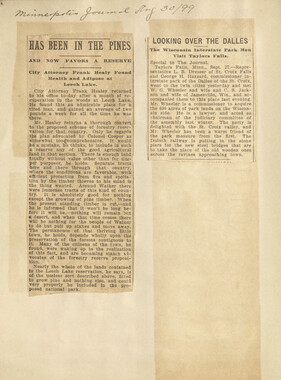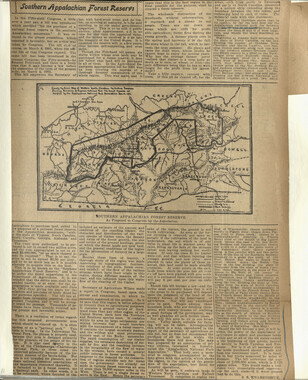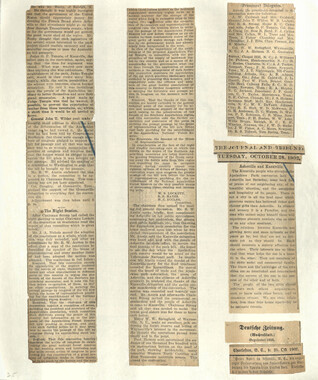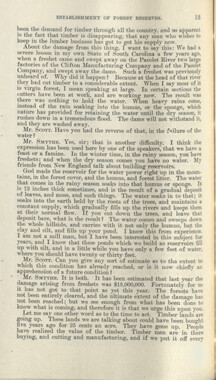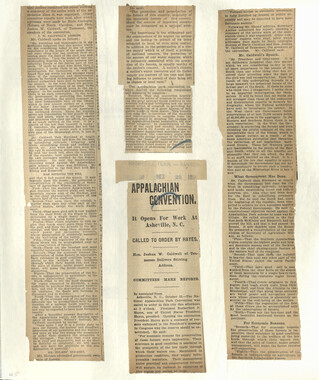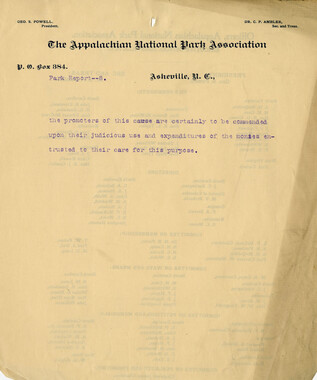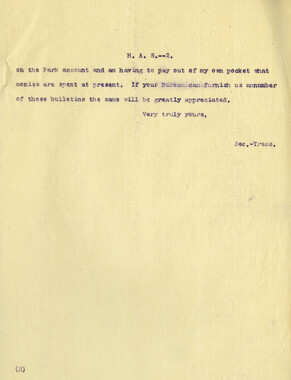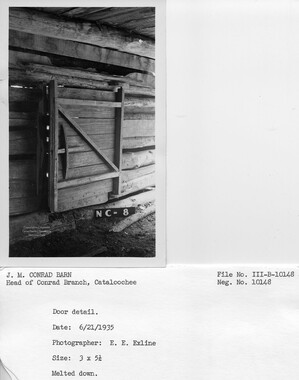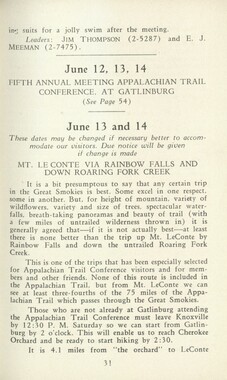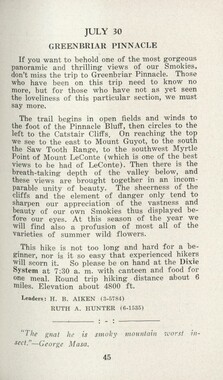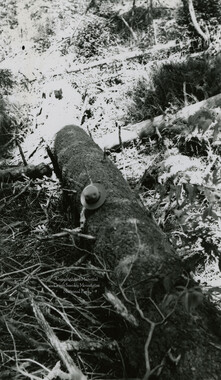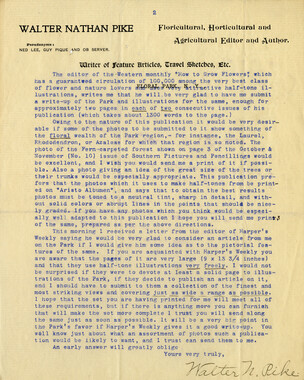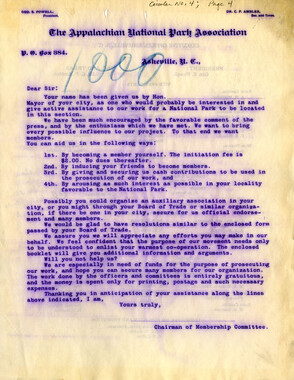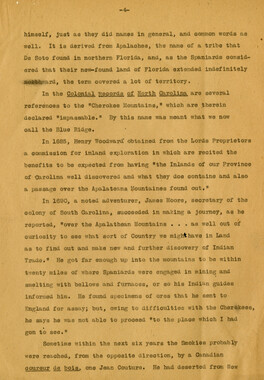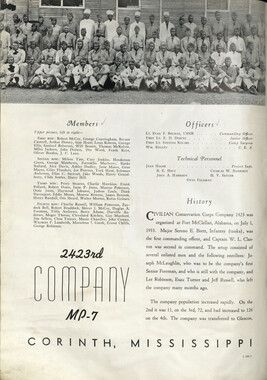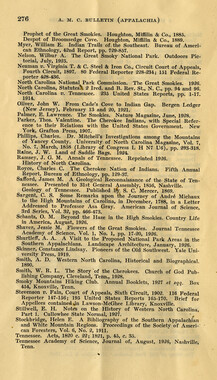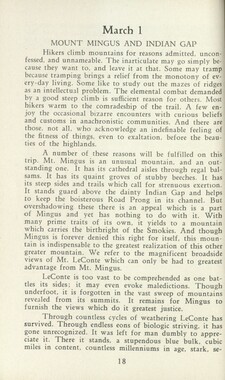Western Carolina University (20)
View all
- Canton Champion Fibre Company (2308)
- Cherokee Traditions (292)
- Civil War in Southern Appalachia (165)
- Craft Revival (1942)
- Great Smoky Mountains - A Park for America (2766)
- Highlights from Western Carolina University (430)
- Horace Kephart (941)
- Journeys Through Jackson (154)
- LGBTQIA+ Archive of Jackson County (85)
- Oral Histories of Western North Carolina (314)
- Picturing Appalachia (6772)
- Stories of Mountain Folk (413)
- Travel Western North Carolina (160)
- Western Carolina University Fine Art Museum Vitreograph Collection (129)
- Western Carolina University Herbarium (92)
- Western Carolina University: Making Memories (708)
- Western Carolina University Publications (2283)
- Western Carolina University Restricted Electronic Theses and Dissertations (146)
- Western North Carolina Regional Maps (71)
- World War II in Southern Appalachia (131)
University of North Carolina Asheville (6)
View all
- Allanstand Cottage Industries (62)
- Appalachian National Park Association (53)
- Bennett, Kelly, 1890-1974 (1388)
- Berry, Walter (76)
- Brasstown Carvers (40)
- Carver, George Washington, 1864?-1943 (26)
- Cathey, Joseph, 1803-1874 (1)
- Champion Fibre Company (233)
- Champion Paper and Fibre Company (297)
- Cherokee Indian Fair Association (16)
- Cherokee Language Program (22)
- Crowe, Amanda (40)
- Edmonston, Thomas Benton, 1842-1907 (7)
- Ensley, A. L. (Abraham Lincoln), 1865-1948 (275)
- Fromer, Irving Rhodes, 1913-1994 (70)
- George Butz (BFS 1907) (46)
- Goodrich, Frances Louisa (120)
- Grant, George Alexander, 1891-1964 (96)
- Heard, Marian Gladys (60)
- Kephart, Calvin, 1883-1969 (15)
- Kephart, Horace, 1862-1931 (313)
- Kephart, Laura, 1862-1954 (39)
- Laney, Gideon Thomas, 1889-1976 (439)
- Masa, George, 1881-1933 (61)
- McElhinney, William Julian, 1896-1953 (44)
- Niggli, Josephina, 1910-1983 (10)
- North Carolina Park Commission (105)
- Osborne, Kezia Stradley (9)
- Owens, Samuel Robert, 1918-1995 (11)
- Penland Weavers and Potters (36)
- Roberts, Vivienne (15)
- Roth, Albert, 1890-1974 (142)
- Schenck, Carl Alwin, 1868-1955 (1)
- Sherrill's Photography Studio (2565)
- Southern Highland Handicraft Guild (127)
- Southern Highlanders, Inc. (71)
- Stalcup, Jesse Bryson (46)
- Stearns, I. K. (213)
- Thompson, James Edward, 1880-1976 (226)
- United States. Indian Arts and Crafts Board (130)
- USFS (683)
- Vance, Zebulon Baird, 1830-1894 (1)
- Weaver, Zebulon, 1872-1948 (58)
- Western Carolina College (230)
- Western Carolina Teachers College (282)
- Western Carolina University (1794)
- Western Carolina University. Mountain Heritage Center (18)
- Whitman, Walt, 1819-1892 (10)
- Wilburn, Hiram Coleman, 1880-1967 (73)
- Williams, Isadora (3)
- Cain, Doreyl Ammons (0)
- Crittenden, Lorraine (0)
- Rhodes, Judy (0)
- Smith, Edward Clark (0)
- Appalachian Region, Southern (2569)
- Asheville (N.C.) (1923)
- Avery County (N.C.) (26)
- Blount County (Tenn.) (161)
- Buncombe County (N.C.) (1672)
- Cherokee County (N.C.) (283)
- Clay County (N.C.) (555)
- Graham County (N.C.) (233)
- Great Smoky Mountains National Park (N.C. and Tenn.) (519)
- Haywood County (N.C.) (3524)
- Henderson County (N.C.) (70)
- Jackson County (N.C.) (4694)
- Knox County (Tenn.) (25)
- Knoxville (Tenn.) (12)
- Lake Santeetlah (N.C.) (10)
- Macon County (N.C.) (420)
- Madison County (N.C.) (212)
- McDowell County (N.C.) (39)
- Mitchell County (N.C.) (132)
- Polk County (N.C.) (35)
- Qualla Boundary (981)
- Rutherford County (N.C.) (76)
- Swain County (N.C.) (2115)
- Transylvania County (N.C.) (270)
- Watauga County (N.C.) (12)
- Waynesville (N.C.) (84)
- Yancey County (N.C.) (72)
- Aerial Photographs (3)
- Aerial Views (60)
- Albums (books) (4)
- Articles (1)
- Artifacts (object Genre) (228)
- Bibliographies (1)
- Biography (general Genre) (2)
- Cards (information Artifacts) (38)
- Clippings (information Artifacts) (191)
- Crafts (art Genres) (622)
- Depictions (visual Works) (21)
- Design Drawings (1)
- Drawings (visual Works) (184)
- Envelopes (73)
- Facsimiles (reproductions) (1)
- Fiction (general Genre) (4)
- Financial Records (12)
- Fliers (printed Matter) (67)
- Glass Plate Negatives (381)
- Guidebooks (2)
- Internegatives (10)
- Interviews (815)
- Land Surveys (102)
- Letters (correspondence) (1013)
- Manuscripts (documents) (618)
- Maps (documents) (177)
- Memorandums (25)
- Minutes (administrative Records) (59)
- Negatives (photographs) (5835)
- Newsletters (1285)
- Newspapers (2)
- Occupation Currency (1)
- Paintings (visual Works) (1)
- Pen And Ink Drawings (1)
- Periodicals (193)
- Personal Narratives (10)
- Photographs (12976)
- Plans (maps) (1)
- Poetry (6)
- Portraits (4533)
- Postcards (329)
- Programs (documents) (151)
- Publications (documents) (2236)
- Questionnaires (65)
- Scrapbooks (282)
- Sheet Music (2)
- Slides (photographs) (402)
- Songs (musical Compositions) (2)
- Sound Recordings (796)
- Specimens (92)
- Speeches (documents) (15)
- Tintypes (photographs) (8)
- Transcripts (322)
- Video Recordings (physical Artifacts) (23)
- Vitreographs (129)
- Text Messages (0)
- A.L. Ensley Collection (275)
- Appalachian Industrial School Records (7)
- Appalachian National Park Association Records (336)
- Axley-Meroney Collection (2)
- Bayard Wootten Photograph Collection (20)
- Bethel Rural Community Organization Collection (7)
- Blumer Collection (5)
- C.W. Slagle Collection (20)
- Canton Area Historical Museum (2110)
- Carlos C. Campbell Collection (282)
- Cataloochee History Project (64)
- Cherokee Studies Collection (4)
- Daisy Dame Photograph Album (5)
- Daniel Boone VI Collection (1)
- Doris Ulmann Photograph Collection (112)
- Elizabeth H. Lasley Collection (1)
- Elizabeth Woolworth Szold Fleharty Collection (4)
- Frank Fry Collection (95)
- George Masa Collection (173)
- Gideon Laney Collection (452)
- Hazel Scarborough Collection (2)
- Hiram C. Wilburn Papers (28)
- Historic Photographs Collection (236)
- Horace Kephart Collection (861)
- Humbard Collection (33)
- Hunter and Weaver Families Collection (1)
- I. D. Blumenthal Collection (4)
- Isadora Williams Collection (4)
- Jesse Bryson Stalcup Collection (47)
- Jim Thompson Collection (224)
- John B. Battle Collection (7)
- John C. Campbell Folk School Records (80)
- John Parris Collection (6)
- Judaculla Rock project (2)
- Kelly Bennett Collection (1407)
- Love Family Papers (11)
- Major Wiley Parris Civil War Letters (3)
- Map Collection (12)
- McFee-Misemer Civil War Letters (34)
- Mountain Heritage Center Collection (4)
- Norburn - Robertson - Thomson Families Collection (44)
- Pauline Hood Collection (7)
- Pre-Guild Collection (2)
- Qualla Arts and Crafts Mutual Collection (12)
- R.A. Romanes Collection (681)
- Rosser H. Taylor Collection (1)
- Samuel Robert Owens Collection (94)
- Sara Madison Collection (144)
- Sherrill Studio Photo Collection (2558)
- Smoky Mountains Hiking Club Collection (616)
- Stories of Mountain Folk - Radio Programs (374)
- The Reporter, Western Carolina University (510)
- Venoy and Elizabeth Reed Collection (16)
- WCU Gender and Sexuality Oral History Project (32)
- WCU Mountain Heritage Center Oral Histories (25)
- WCU Oral History Collection - Mountain People, Mountain Lives (71)
- WCU Students Newspapers Collection (1744)
- Western North Carolina Tomorrow Black Oral History Project (69)
- William Williams Stringfield Collection (2)
- Zebulon Weaver Collection (109)
- African Americans (390)
- Appalachian Trail (35)
- Artisans (521)
- Cherokee art (84)
- Cherokee artists -- North Carolina (10)
- Cherokee language (21)
- Cherokee pottery (101)
- Cherokee women (208)
- Church buildings (170)
- Civilian Conservation Corps (U.S.) (110)
- College student newspapers and periodicals (1830)
- Dams (107)
- Dance (1023)
- Education (222)
- Floods (61)
- Folk music (1015)
- Forced removal, 1813-1903 (2)
- Forest conservation (220)
- Forests and forestry (1184)
- Gender nonconformity (4)
- Great Smoky Mountains National Park (N.C. and Tenn.) (181)
- Hunting (38)
- Landscape photography (25)
- Logging (118)
- Maps (83)
- Mines and mineral resources (8)
- North Carolina -- Maps (18)
- Paper industry (38)
- Postcards (255)
- Pottery (135)
- Railroad trains (71)
- Rural electrification -- North Carolina, Western (3)
- School integration -- Southern States (2)
- Segregation -- North Carolina, Western (5)
- Slavery (5)
- Sports (452)
- Storytelling (244)
- Waterfalls -- Great Smoky Mountains (N.C. and Tenn.) (66)
- Weaving -- Appalachian Region, Southern (280)
- Wood-carving -- Appalachian Region, Southern (328)
- World War, 1939-1945 (173)
Appalachian National Park Association Newspaper Clippings, 1899-1902
Item
Item’s are ‘child’ level descriptions to ‘parent’ objects, (e.g. one page of a whole book).
-
-
THE ASHEVILLE CITIZEN. THURSDAY, JUNE 5, 19i 0, APPALACHIAN PARK BILL MAY BE PASSED AT THIS SESSION Editor of The Citizen; At the St. Louis mi May 17th, i tional I tlon pa Unh i the national 0 ui-fins <ingress the Impo Hshing a na In the Ood region rn Ap palachian mount . ing these truc-tive Hoods i ,ioi." i tig- unsolicited as l| I'-ll: • Ion of the timber and far cultural low-tends, On Tl annual dinner of the Nor: lield in ',: lei room at Dele Ik with stereoptlcan being an argument for -Hi- it will I thai of tin- lumber kin, mntry, I ■niion in Congress to act at once ihis important measure. la., Journal of May which stated thai Simmons of North Carolina had introduced a bill for the a "vast ton st reserve In the southern Appalachian region.'' ; urn Senator Simmons dated "d to Secretary Am- i this report ke and must have oc which 11 tatlVe of the Journal, tho .ing it foi d that had Introduced the only bills now pending is measure were introduced ■ssman ressman Elliott of South House nl has re- tQ Mr. for the- hearing of the matter in rge in Washington fei they tin- spea nance I hllillull t lie pi 1 me ■), L90J P. A. FOR APPALACHIAN RESERVE. v iron DEPEW M>inti:ssi:s mi: m \ ill: IX FAVOB OF IT. Tilt Bill \ppr..pilules HIO.OOO.OQO for the Purchase ol 4,000,000 Acres Of Fore»1 Land In Six Sollllielll Stales Tb« lle- IMII lie About ISO Mill's Long. W, tone i I'm me nv (Rep., N V I of a bill 10,000,000 for the purol n- the i.m i t a nal lonal fori within North Carolina, i. Alabama ■i 1,,. bill iwi repoi ted or Feb, n the Commit b n Foreel Reserva- inii the Protection or Game, of which I i.-|iew l« a member, and iu now on the Mr. Depew naid: Nature hi - prodigal i" her gifts [ted States that tho Im- portant question of their preservation lias been neglected too long. The attacks of nods for clearings and » home have been Indiscriminate and ml in the extreme. The settlers are nol to blame, nor are the lumbermen. The action which has been going on with such frightfully Increasing rapidity during the last fifty year,- is duo to a lack of that governmental supervision in the interest nl the whole people whioh can only come education and experience. The lumberman wishes to realize at once upon his parallel as a rule vast fortunes are made in deforesting the land. Railroads are run Into the w is, all the appliances of modern inventions and machinery are at work and magnificent Inheritance is being squandered with a rapidity which is full of peril fOr th'' till III .■ Intel] mil nf the forests of evidence of its civilization Tie- climate, the soil, tie ductb ■ :i,, the equability rainfall and the beneficent flow of tin- streams are all dependent upon the science of forestry. We have wisely set apart al- iii the v, esl fori y one national forest tboul 18.000,000 aoret Oi them Is nil .-mi\ paying expenses and yielding i revenue. 'i he Appalachian foi pro- ' in t he pending measure Is about ISO hi lengl ti and of varj ing bn adl n. it n too to coo feel above the eeo it hrougb i he 81 ate i of Virginia, w est Virginia, North and South Carolina, Georgia, Aliiteioi.i ;:mi Tennea tee rWn I these mooiitiiiii:, in,, very steep, varying fi o degrees at the lowest, to 10 degi ['he waters which flow from t he perpetual stream t, fed by the perpetual springs, run on the one 0 I lie At Ian tic and on I he ol her to t ho Gulf of Mexico The streams from this mountain forest are t he trtbutarle important rivers; The James, the Roanoke, the Catawba, the Savannah, the New tKaiia- wtiat, the 11 I in- I'rench Broad, i he i he Vmikiii. t In i lhattahoool , the Broad, the Hlwnssee, the Nollchucky, the Pigeon, the Tuckasegee, the Watauga and the Motion The region affected by these stream Miles in widl h on the Atlantic side, and more than that on the other, it comprises pari or t he richest agricultural country in i in- united States. The timber In this forest Is all hard wood, and is the largest body ot hard wood on the American Continent. It is a museum of forest growth, embracing, on account of its location, the woods which can be grown in temperate, semi-tropical and tropical coun- There are 187 varieties, making this forest, one of the most. Interesting in the •world. Tin- dee]) soil has been forming for a thousand years of more, and in its interlacing Of tree roots and humus, of grass and leaves, there has been created an enormous sponge for the absorption, retention and distribution of the rainfall. The rainfall in this region is greater than in any other part of the United States except the North Pacific coast. It ranges from 00 to too inches a year. The downpour at one time during the past year was 30 inches | Where the forests are intact the water flndi I Jts way through this thick and porou soil iroes into the crevices of the rocks and into' the gulches and forms springs anil rivulets. Nature, always beneficent m her operation, so arranges this vast collection of the rainy season that during the rest of the year it flows out, naturally and equably through the rivulets into the streams and through tl into the rivers, and ri anil fertilizes hall a dozen .states. The results of an attack upon this fort- tress created by nature for tho protection and enrichment of the people Is more disastrous than the sweep of an Invading army of savages over a thickly populated and fertile country. They kill they carry off captives, they burn and they destroy, but after the war the survivors return to their homes and in a few years every vestige ol the ruin has disappeared. In Its place th.-re are again dues, villages and happy people But the lumberman selects a tract of hard-wood forests upon the Appalachian Mountains. The trees young and old,, big and little, surrender to the ax and thi old to the farmer, who finds abundant harvests in its primeval richness. For about three years he gathers a remunerative and satisfactory harvest, hut he enormous rainfall descends, his farm gradually disappear. .\t the end e can no longer plant, crops, hut for two years more, if lucky, he may be able to graze his stock. At the end „l five years tin- rains and floods have washed clean the mountain sides, have left, nothing but tlie bare rocks, have reduced his farm to a desert, mid created u ruin which can never be repaired, Hilt, thi- is not all. That farm has cone down wiili lie- torrents, which havo been formed by the cutting off of the pri woods, into the streams below. It lias eaus. to spread over the farms of the valleys wd plateaus. It has turned these pel 1'uI waters into roaring floods, which have ploughed deep and destructive gullies through fertile Bold across grassy plains. One freshet in the Catawba River last spring, occasioned wholly by tie- deforesting of the mountains, swept away a million anda half dollar ol' farms, buildings mil stock. The damage done by tie- freshel oi last year alone, in the large territory I'ed by the streams and rivers Which enllie from these mountain estimated al ovei 118,000,000. This destruction can not In- i' any years without turning into a desert, I tie I'liirest portion of our country. The proposition in the bill is to authorize tie- Secretary of Agriculture, at an not exceed ing Sin,nun,ni hi. to purchase 4,000,000 ol' these forests. Thi rl now In large tracts of from 1,000 to 5,000 acres. They me being rapidly bought up bj lumber :■ uiies at from 11.50 to ii an a ere. Tim I am Informed, would much prefer selling I liein to the Government than to individuals or corporations. Tie ,, obvious. 11 ; iii mated by t' I ot Agrtoull ure I lint wit hin I', t he fores! a would he self-susl a eiiee of he for all time to come It, is Impo ,i,ite, to undertake this work. Ww York, in order to protect the Mud Mohu i- k, has b asing n In i he Adirondack fore she proposes adding to every year this is hie liee.-ni io t lie whole i<T' ii nry is within the ioi in t he Appalachian region one : i,.. ,.,,,,, not buy l he forest soiirees ol' the are in anol her State -i i,, SI ill e Whl0h has t he I ile, go io the expense ol i in orih-r to preserve the stre nil ure and Industries of adjoli mon wealths This is a work which should be done by the Government because it Intere Is many 1 in a large way the peopl whole country. Instead of being an eNponso and a drain—and it would he tie pence which the Government cot ii that was necessary il. will be on, beneflclent improvements which win s>„.,i blessings everywhere, and at, the I"- self-sustaining and a source of everlasting revenue to the Government. Mr. Hale (Rep., Me.) complimented Mr. Depew on his speech and asked him what the plan was. Mr. Depew replied that the bill hail been reported unanimously after an exhaustive. consideration, and that it proposed to pivo to the Department of Agriculture the right to purchase lands in the southern Appalachian Mountains, making a. Government forest reservation like those in the jJVest. .. "I do not think," Mr. Hale said, "that the Senate can fail to have been impressed with the great importance of the subject I was not aware of the extent of land pro-' posed to be purchased, but I think that something ought to bo done about it during this session." The bill went back to the calendar. D
Object
Object’s are ‘parent’ level descriptions to ‘children’ items, (e.g. a book with pages).
-
This is one of two notebooks assembled by the Appalachian National Park Association that includes documents and news clipping about the organization. The Appalachian National Park Association was formed in 1899 for the purpose of promoting the idea of a national park in the eastern U.S. Although housed in Asheville, North Carolina, the organization was a multi-state effort, attracting representatives from seven southern states. One of the highlights of the group’s activities was a convention held in 1902 to which 1,500 people attended. The association lobbied Congress for the creation of a park, but with limited success. The association disbanded in 1905.
-
